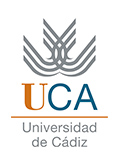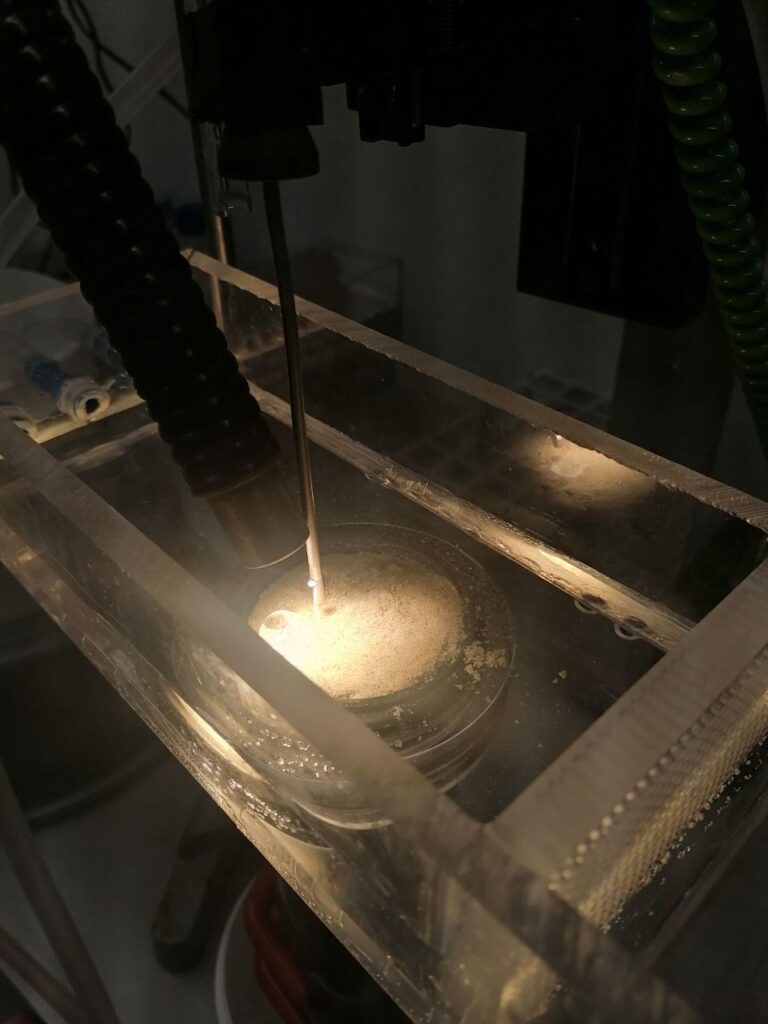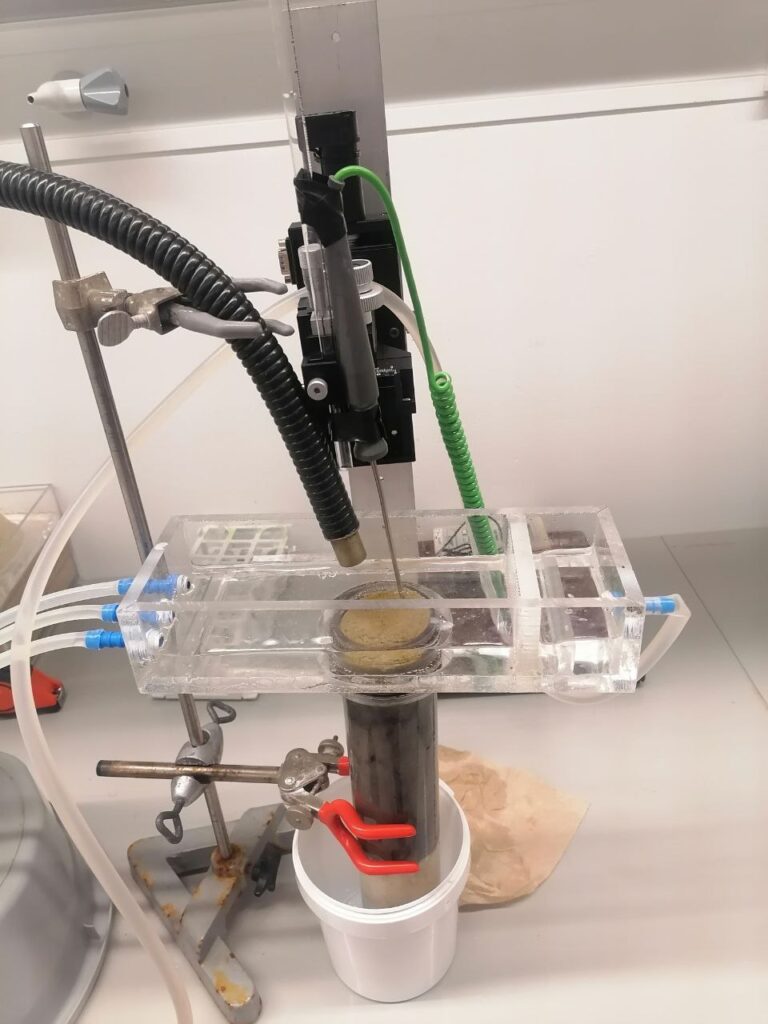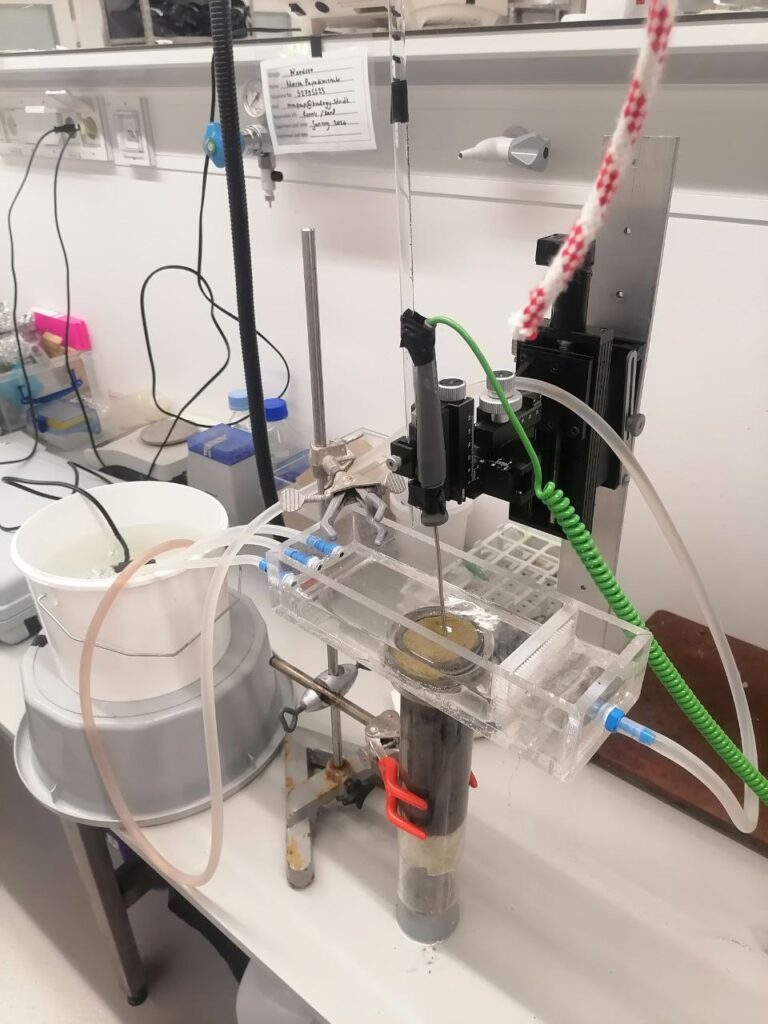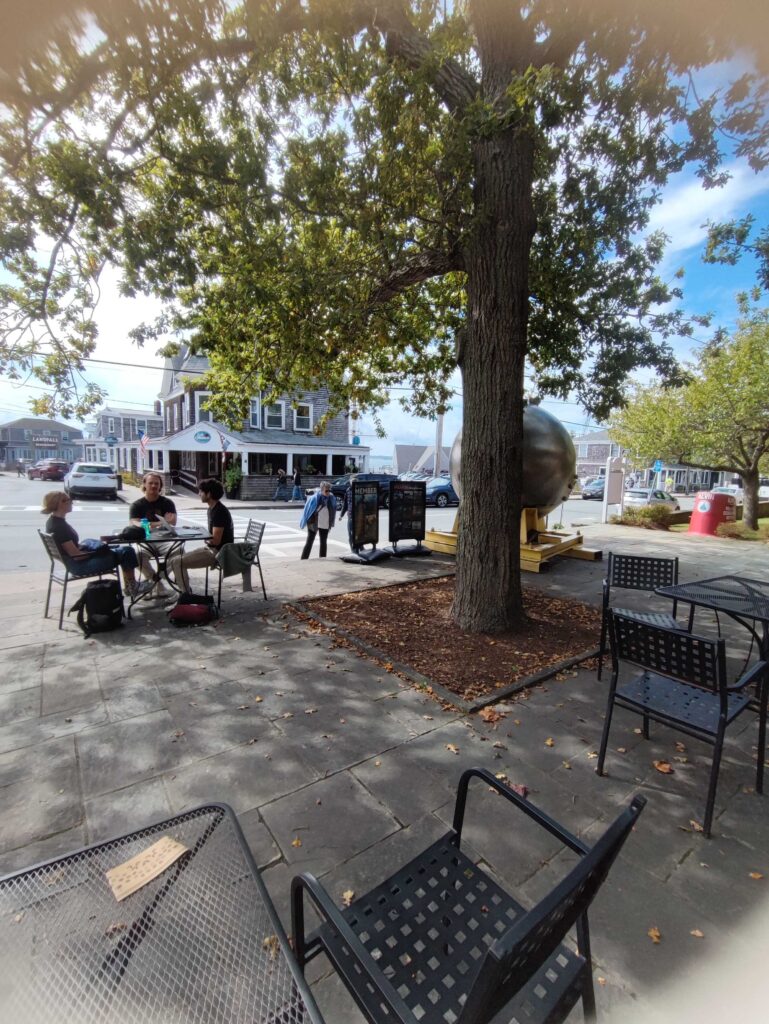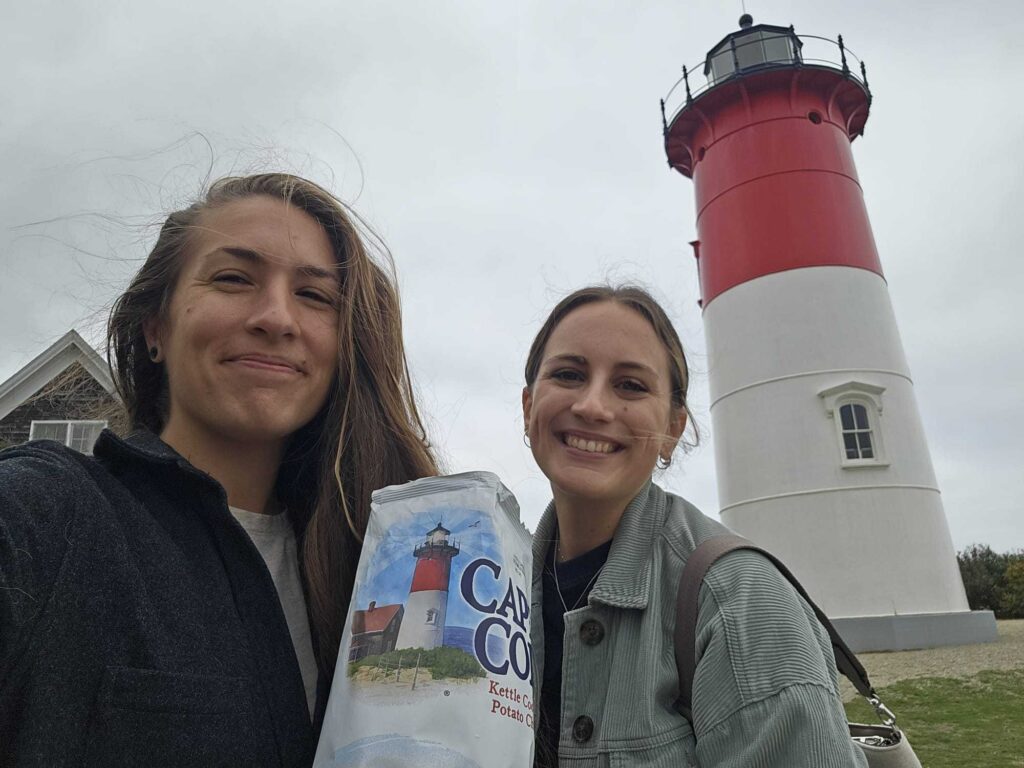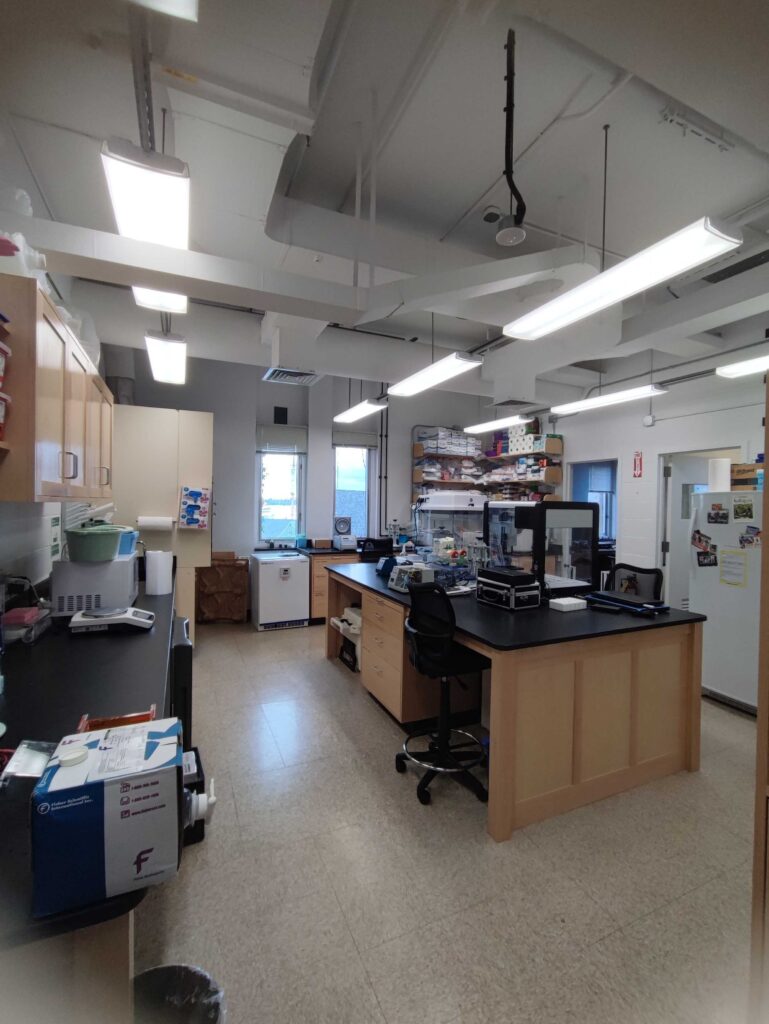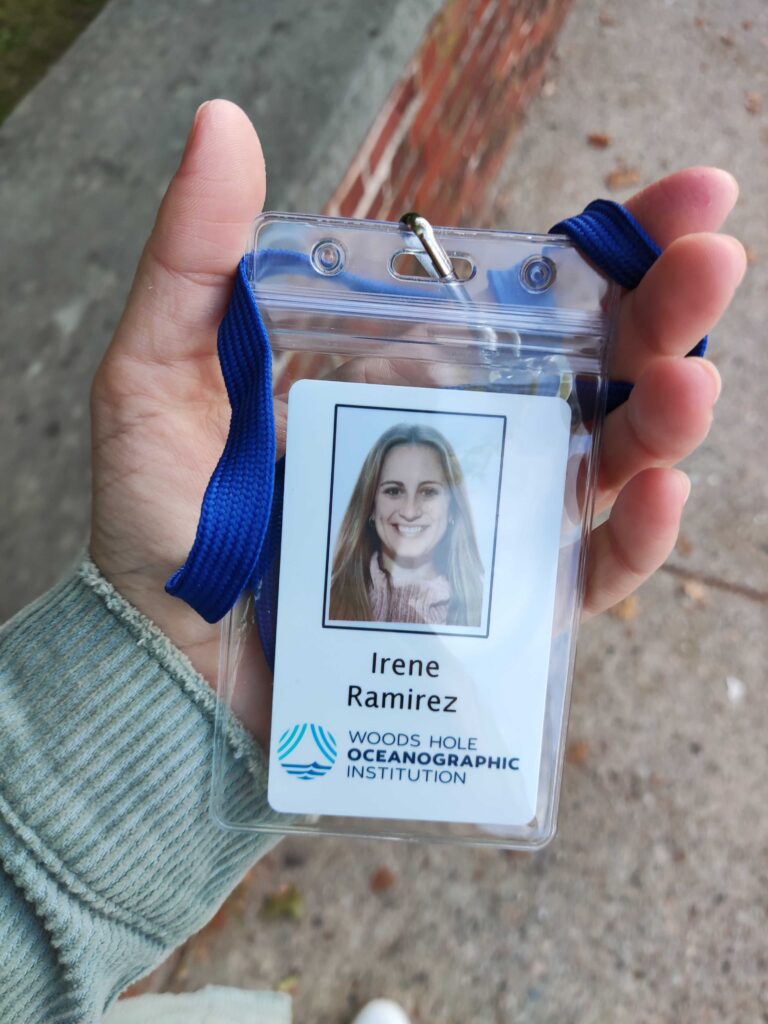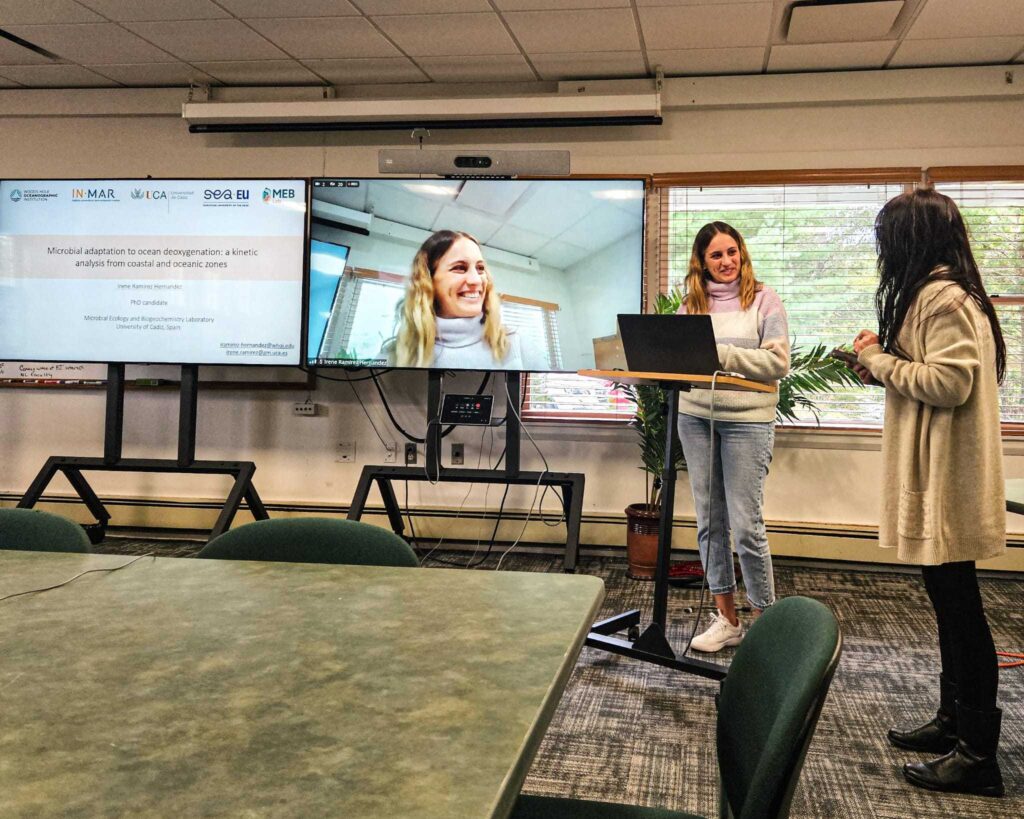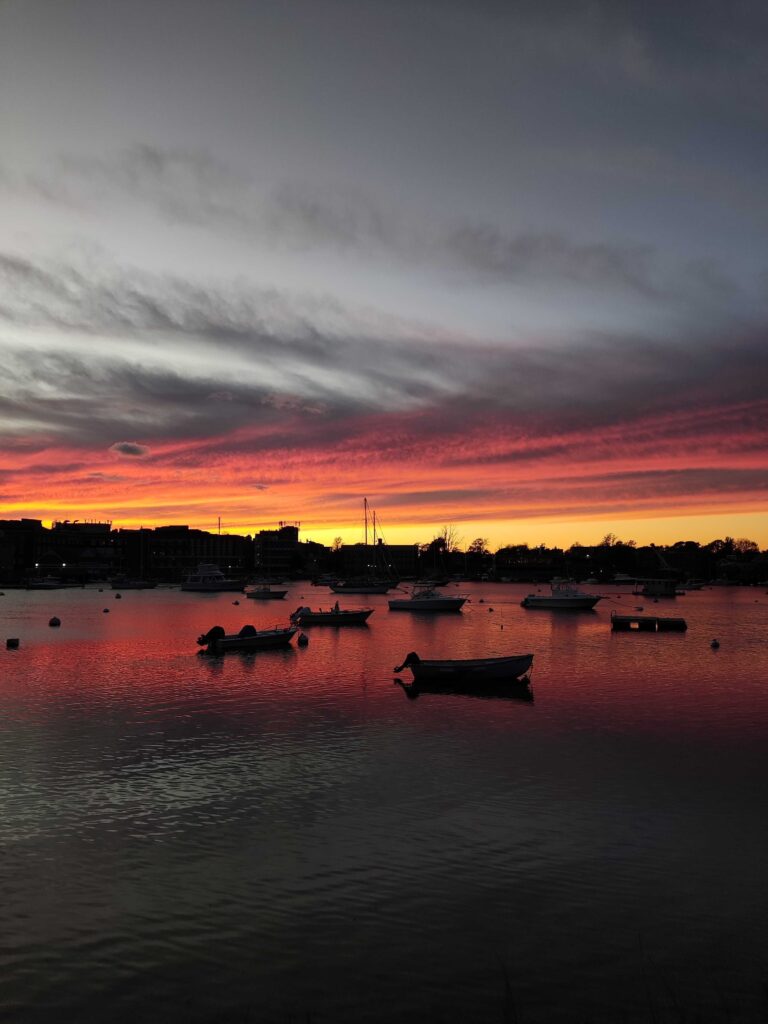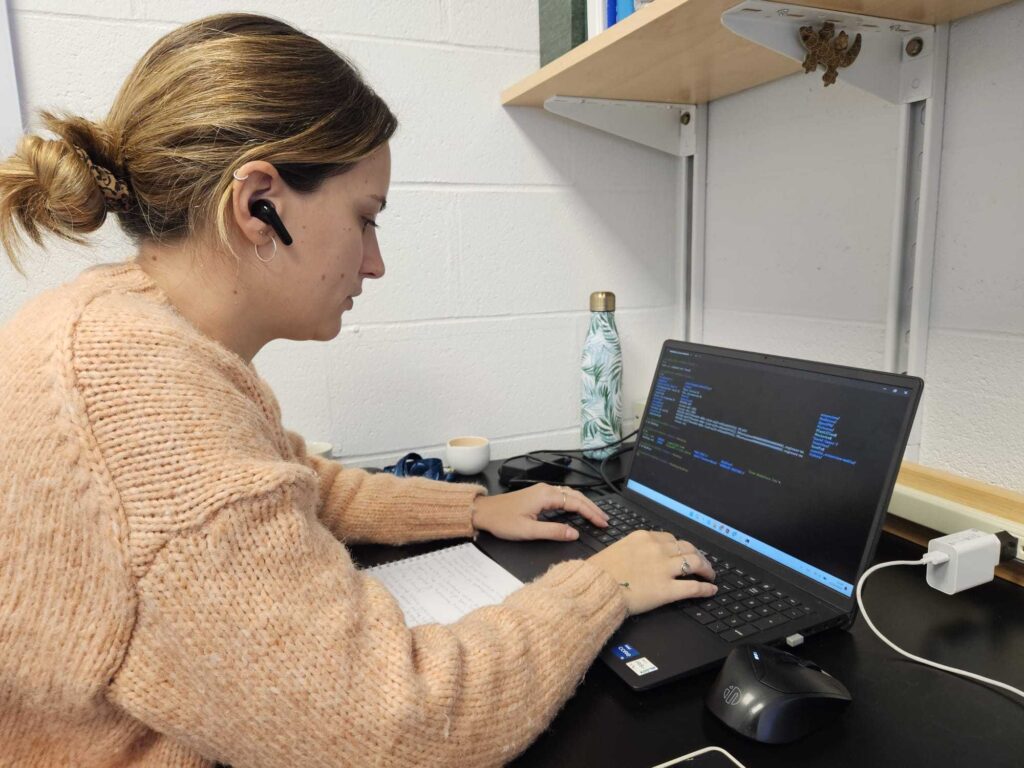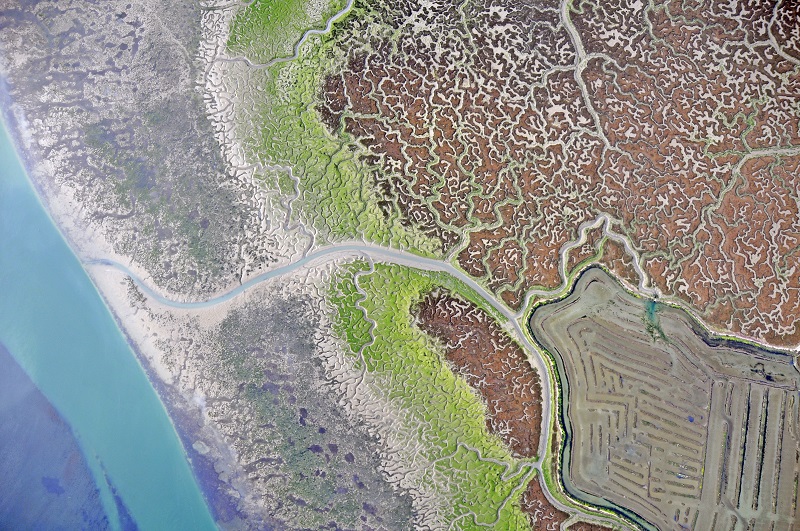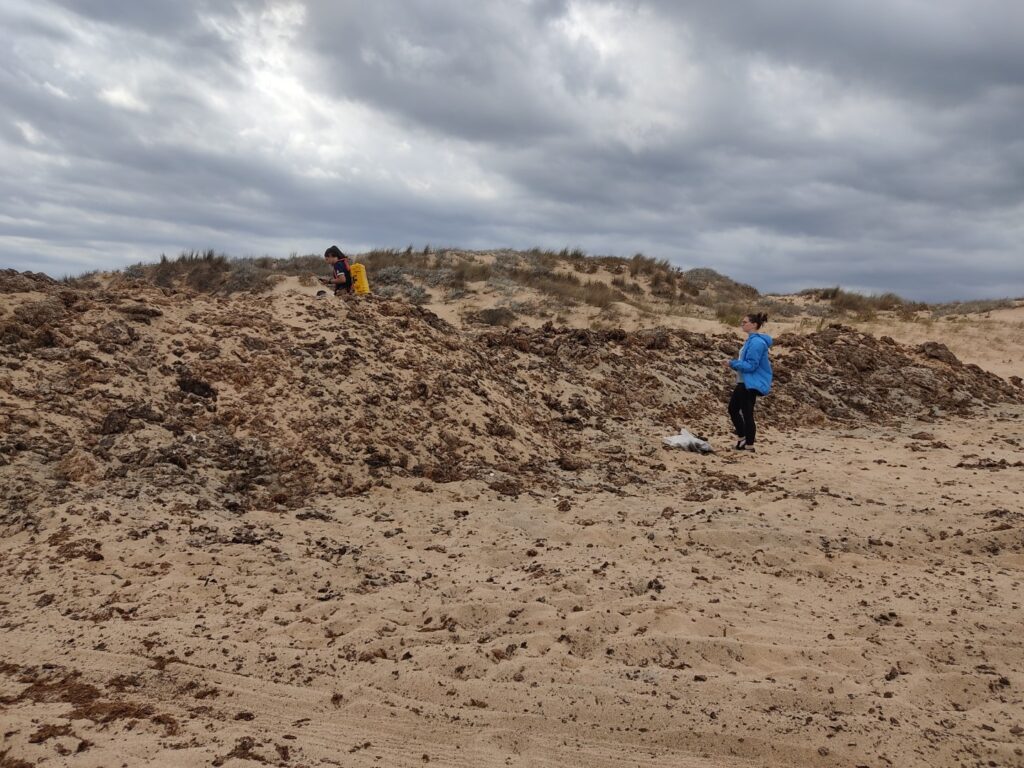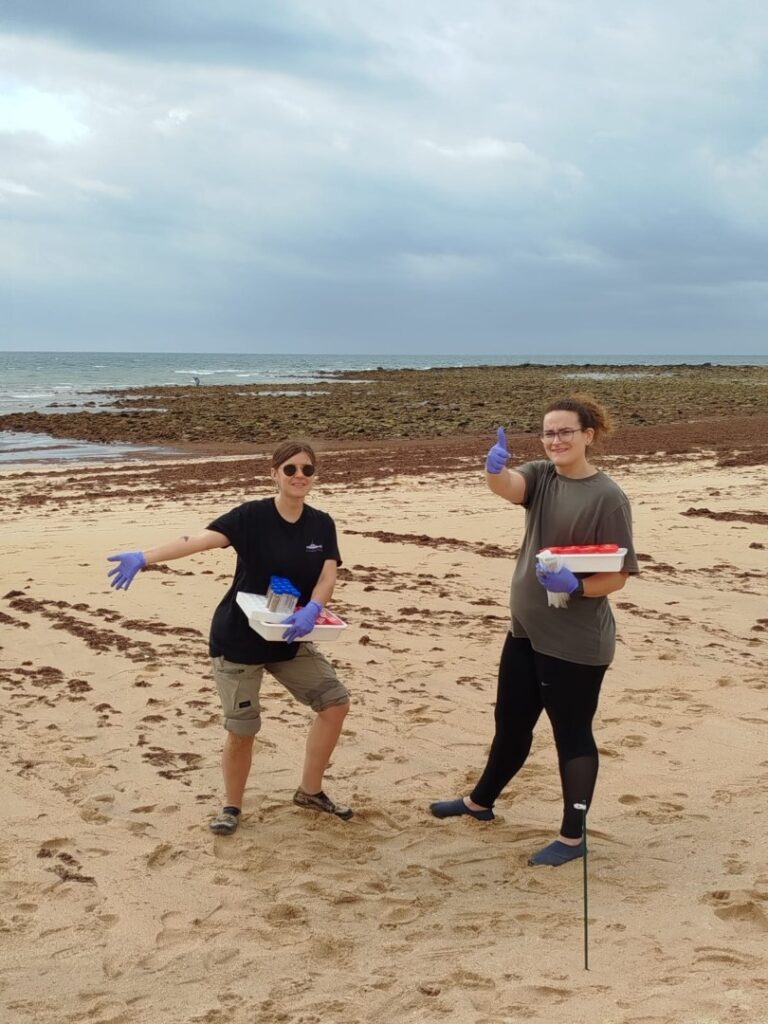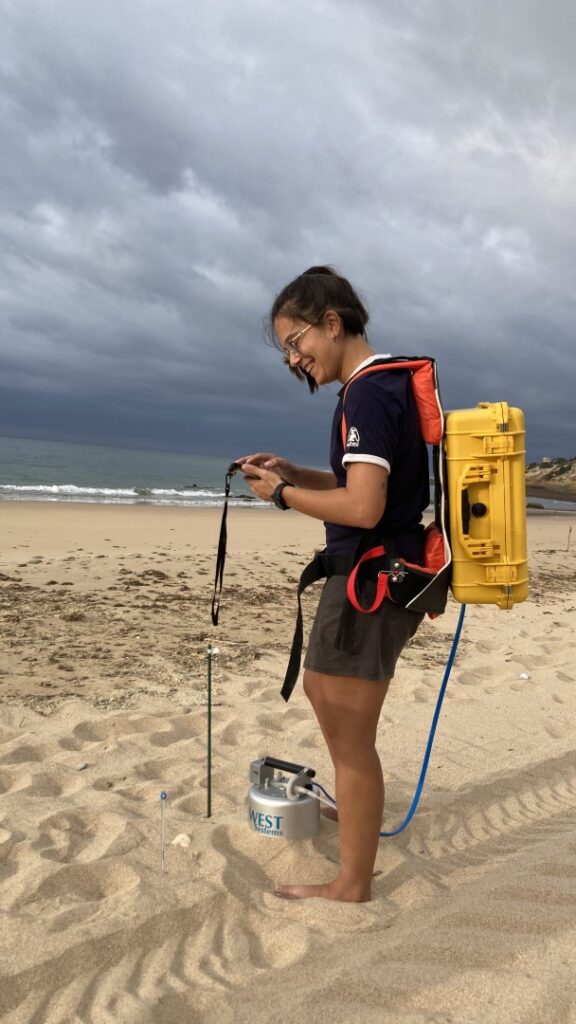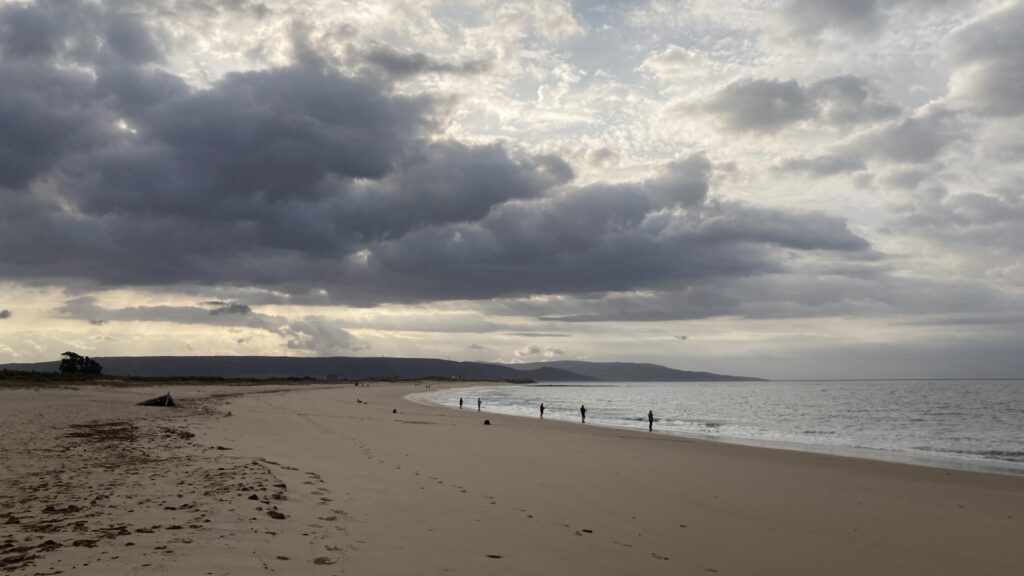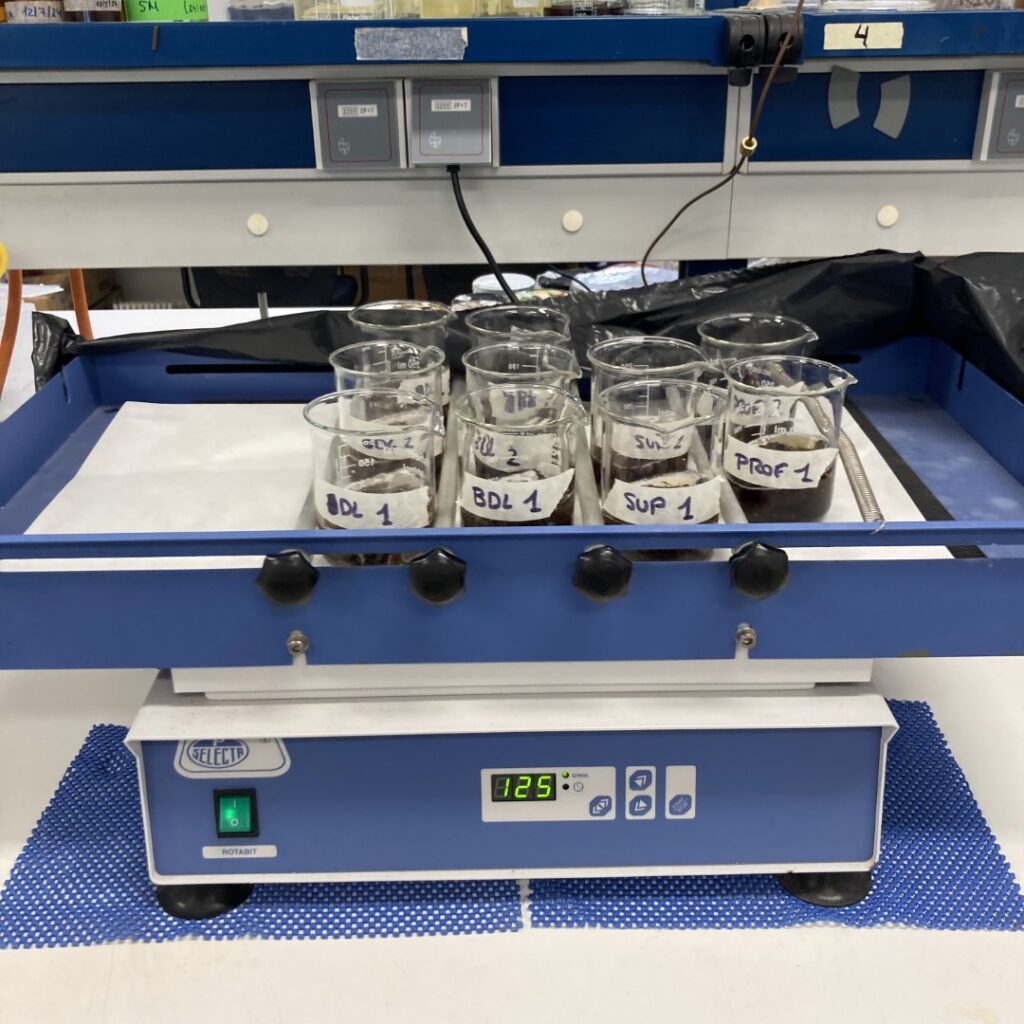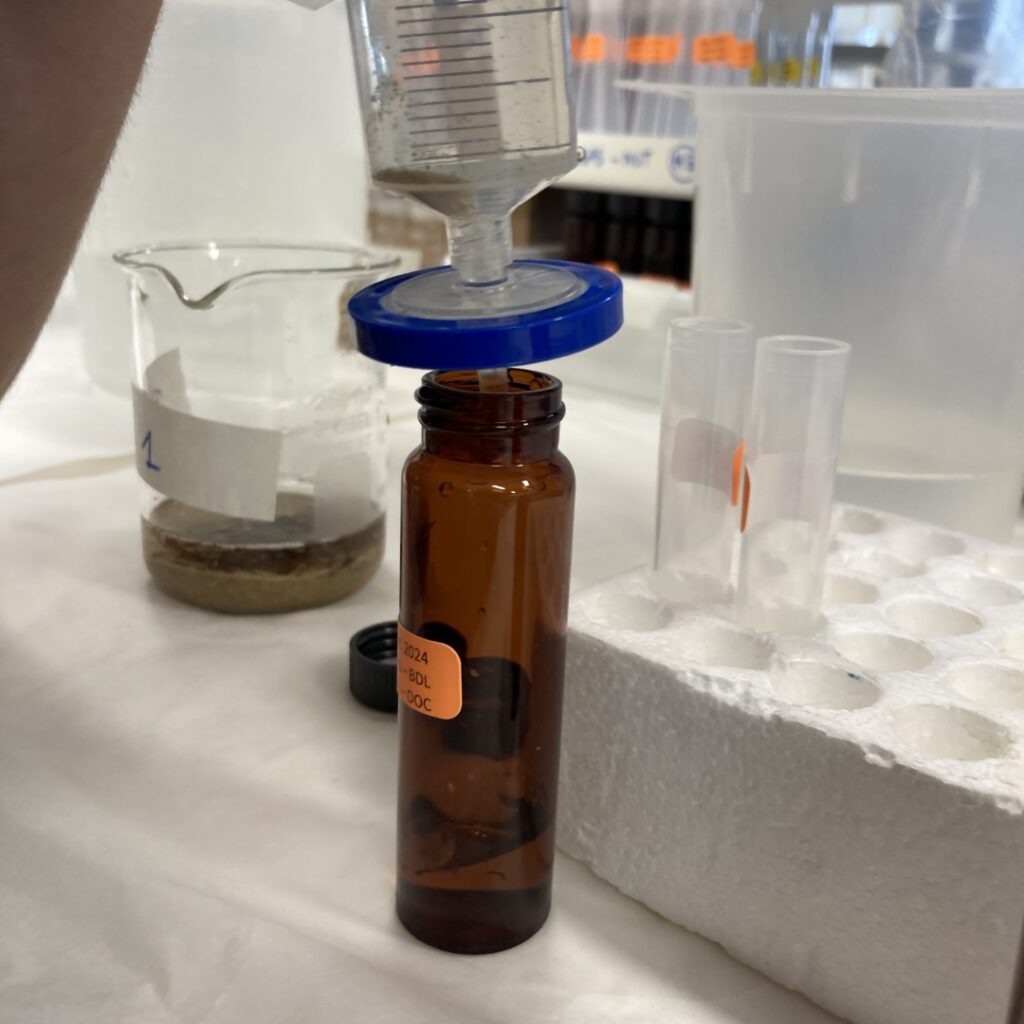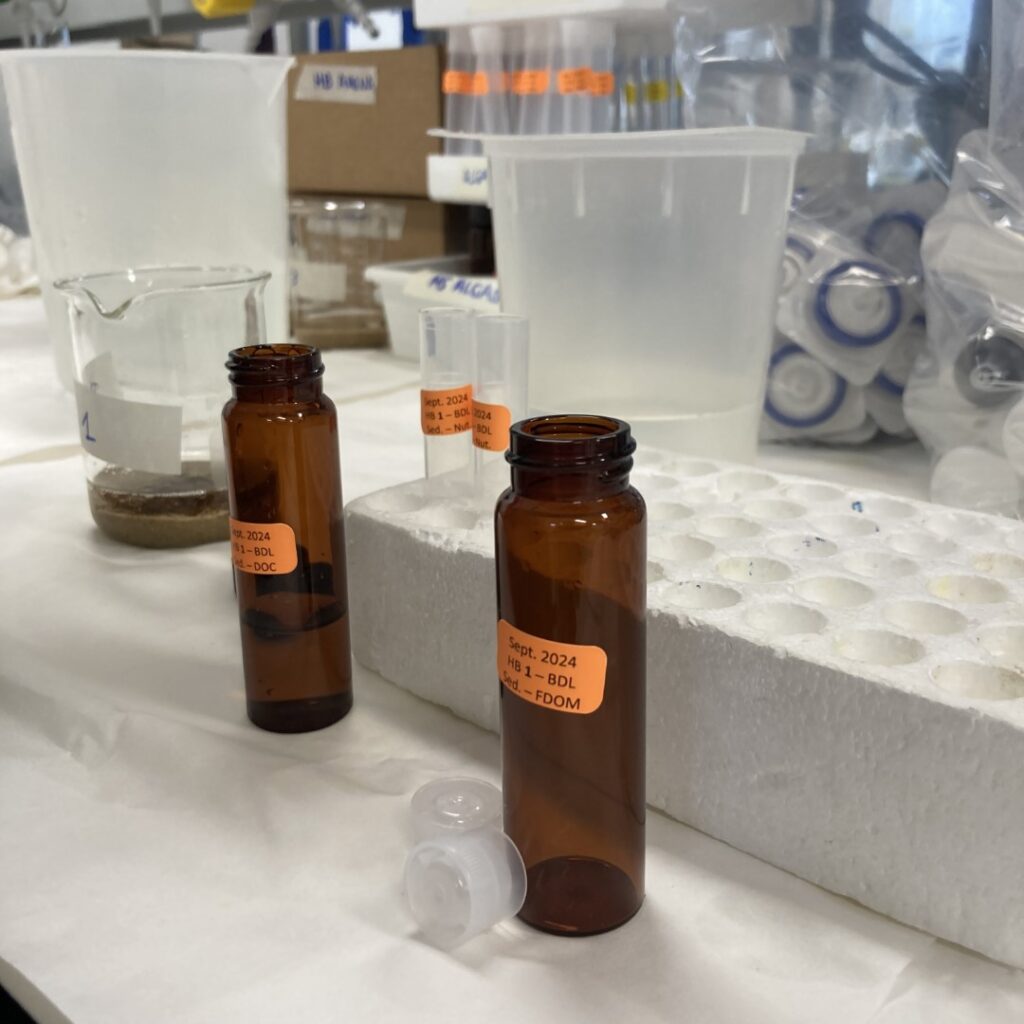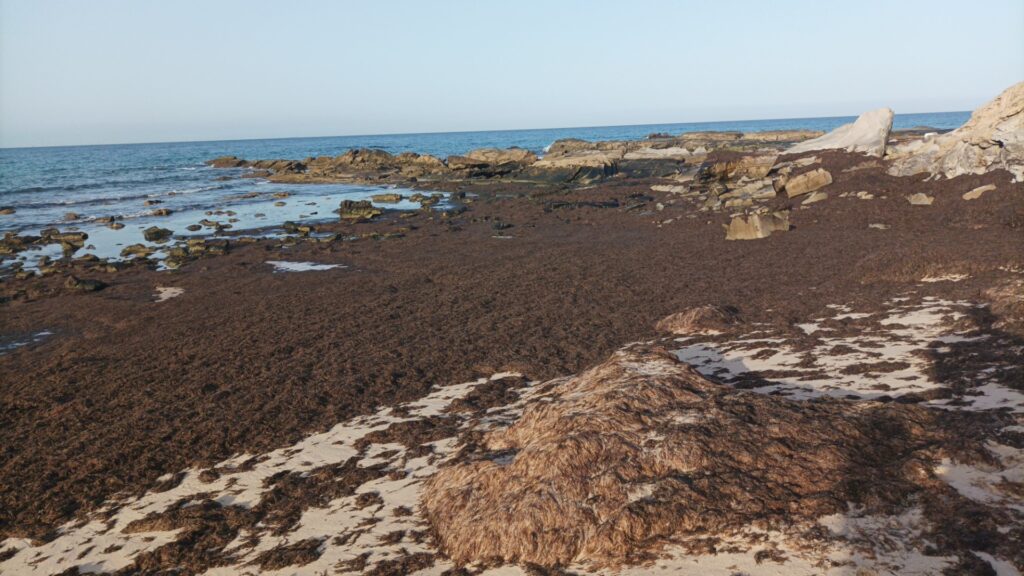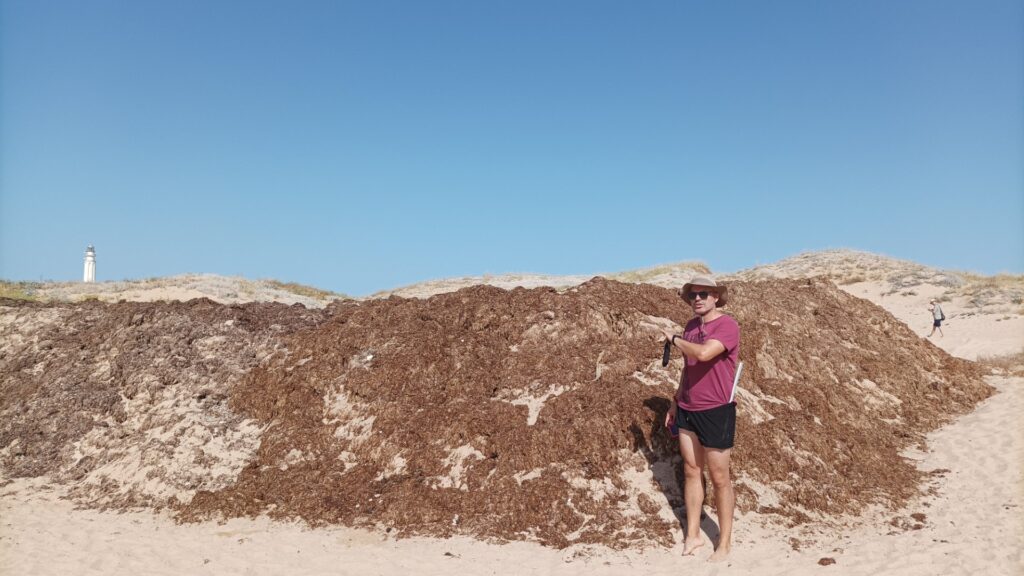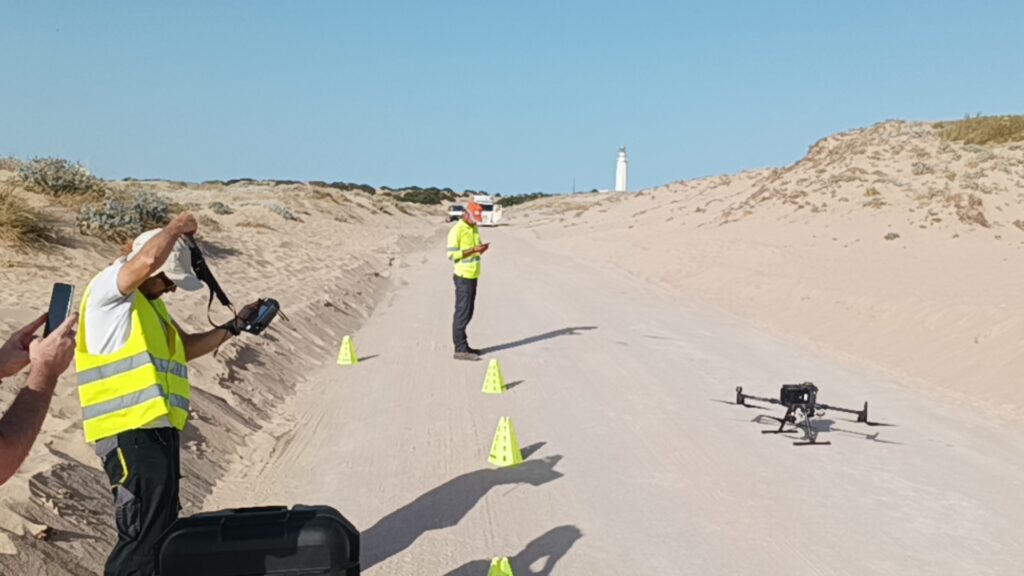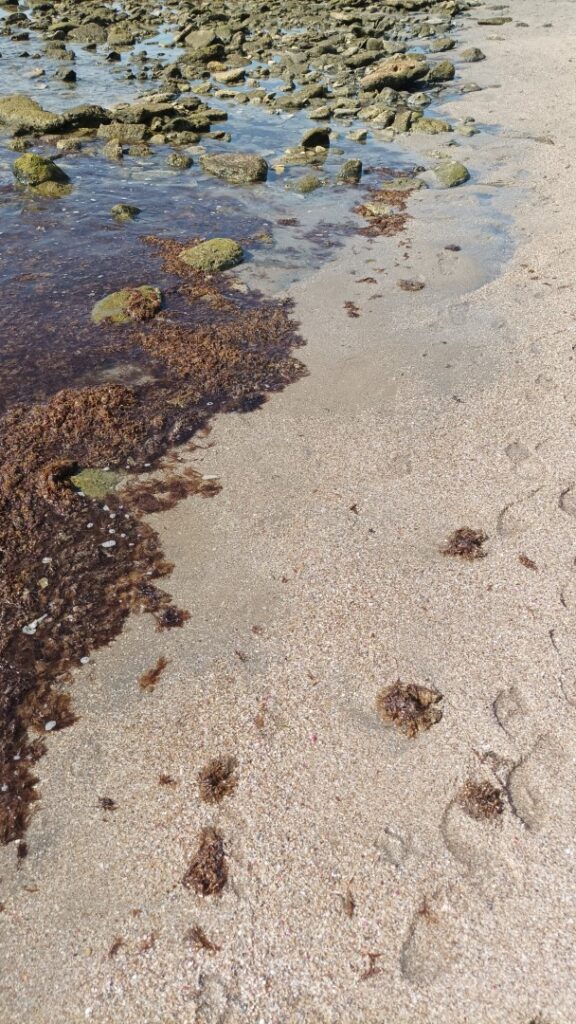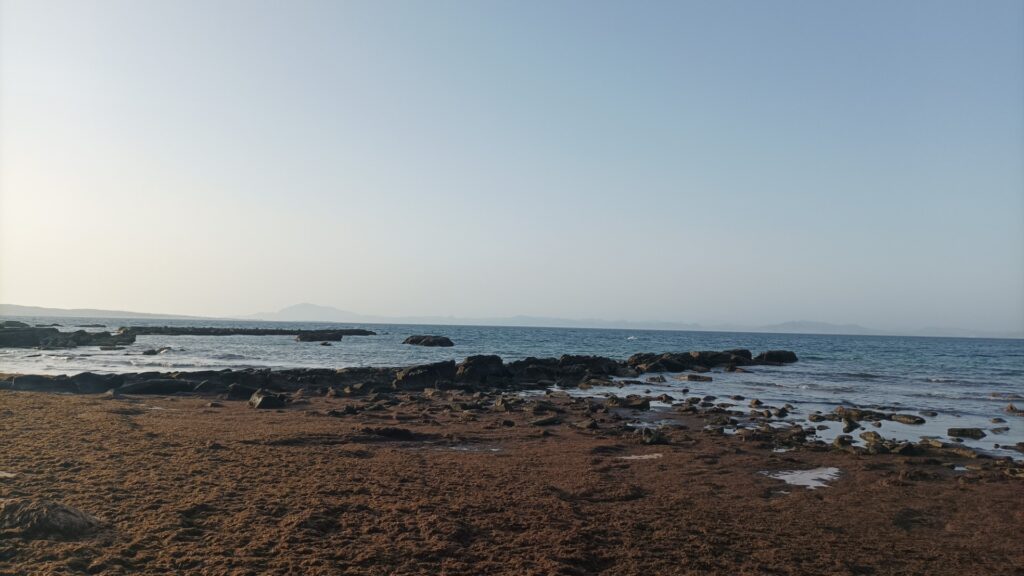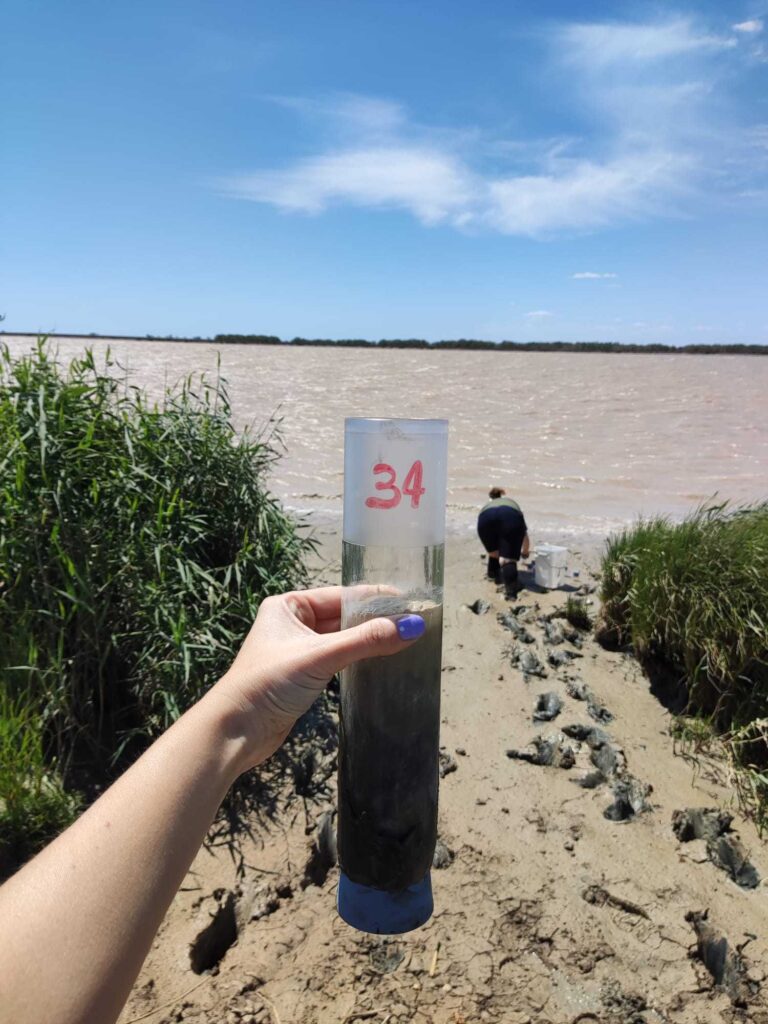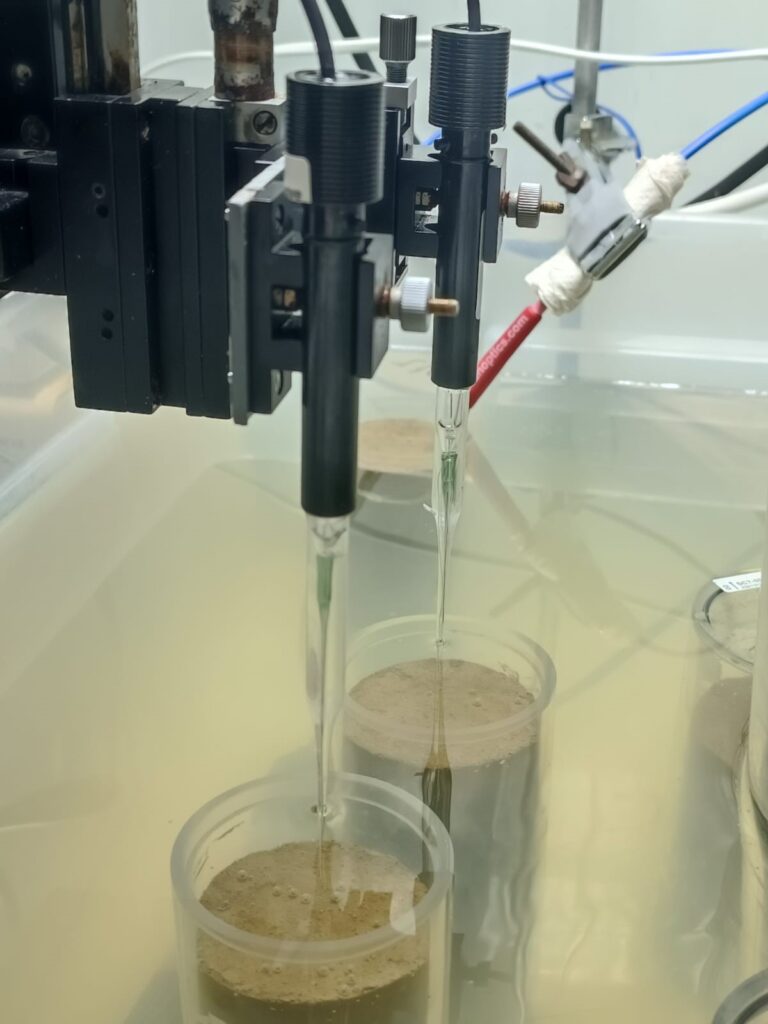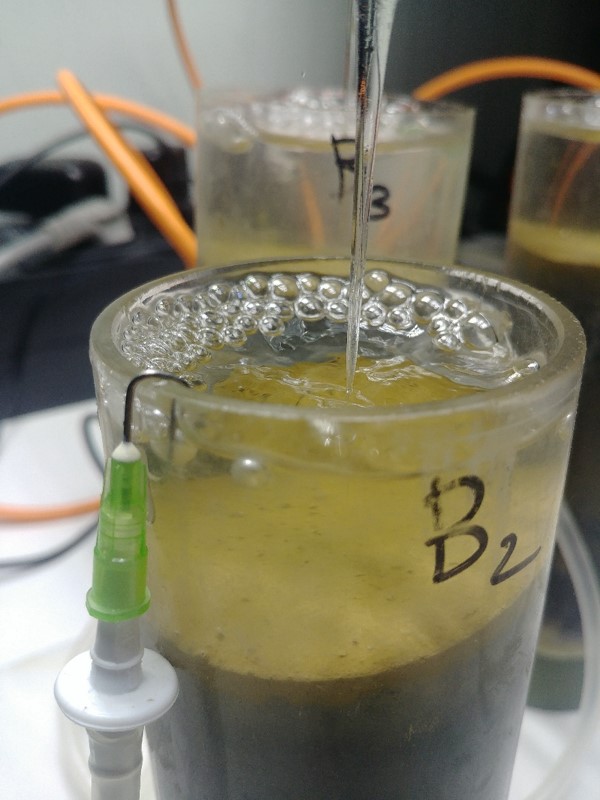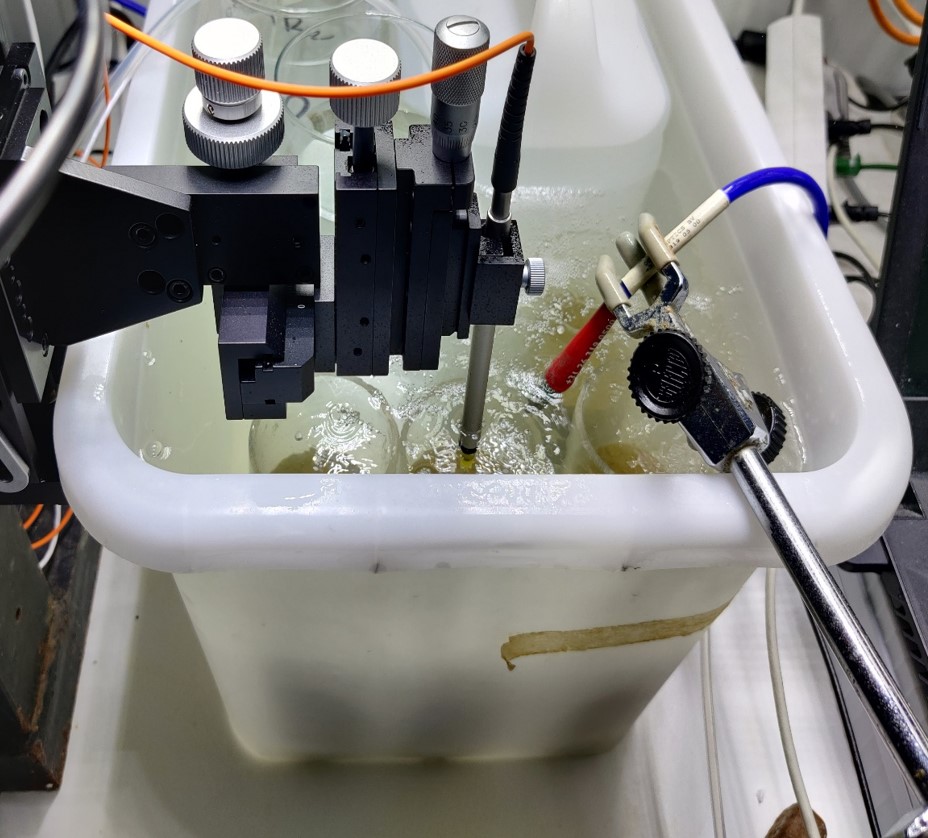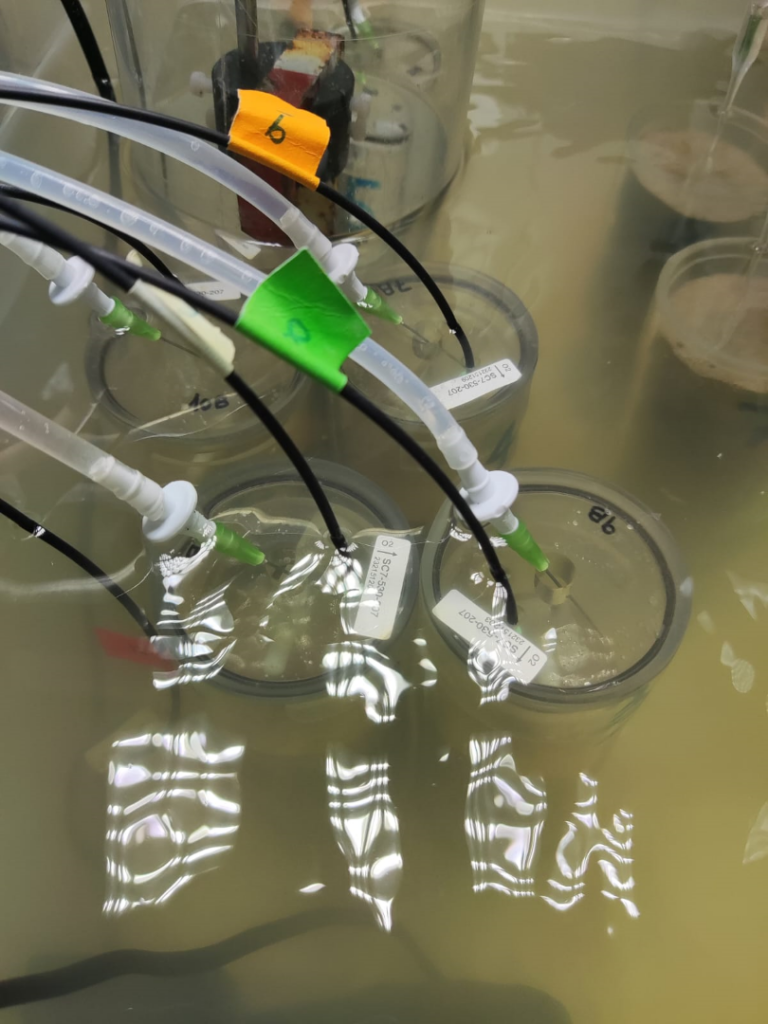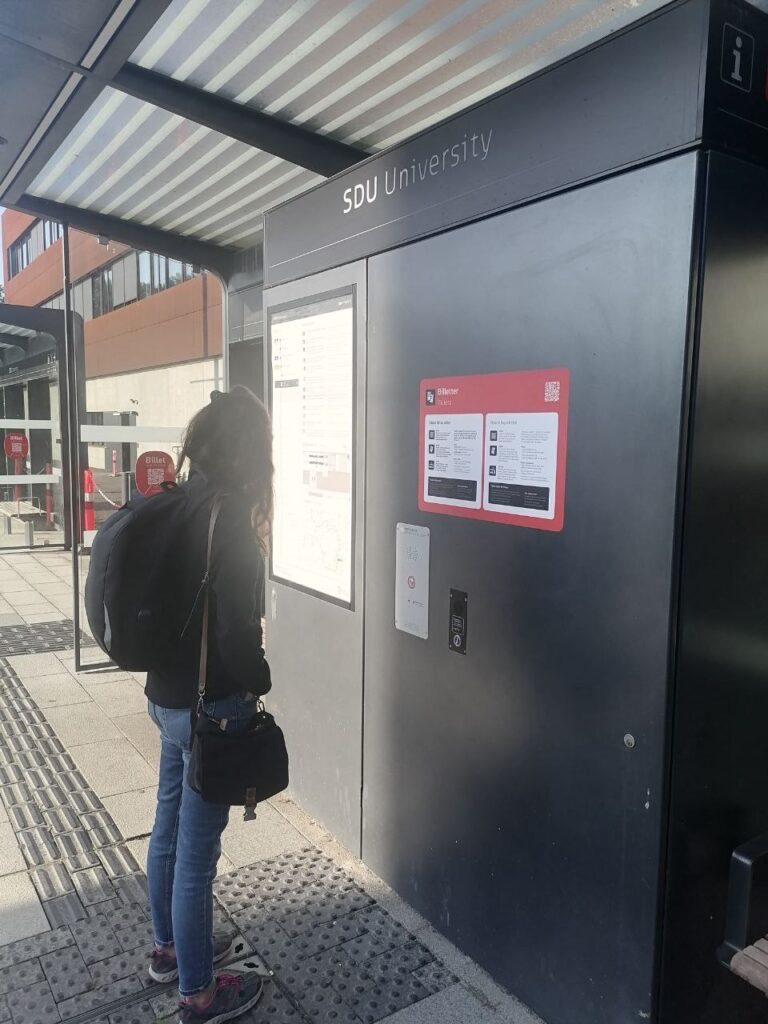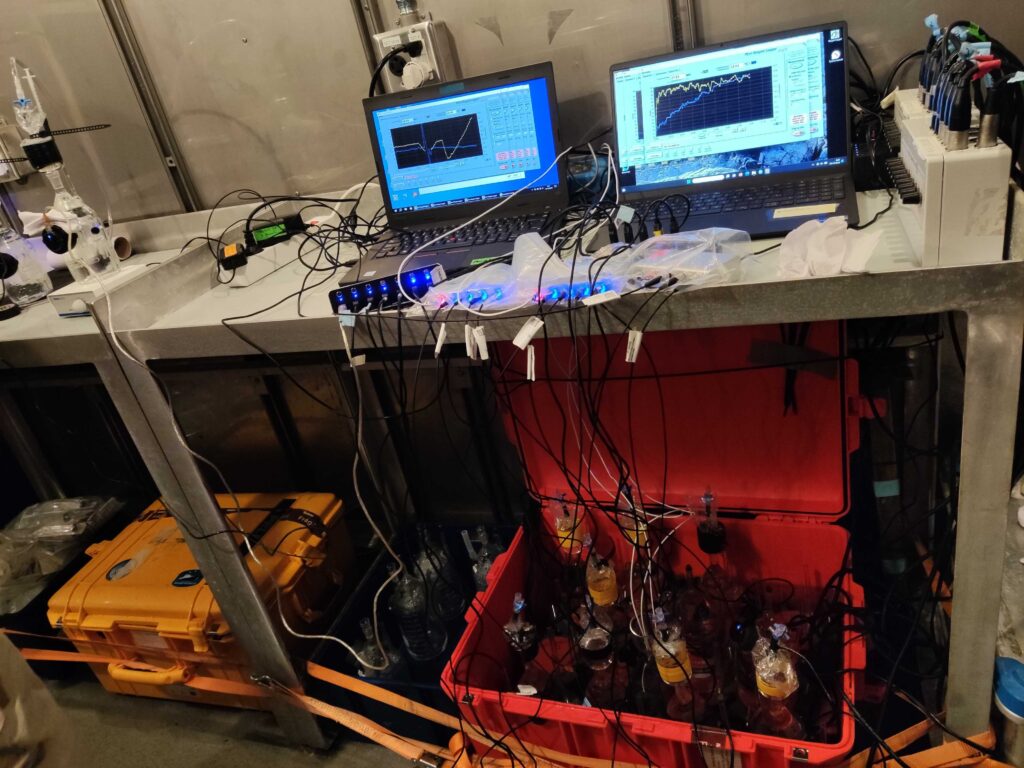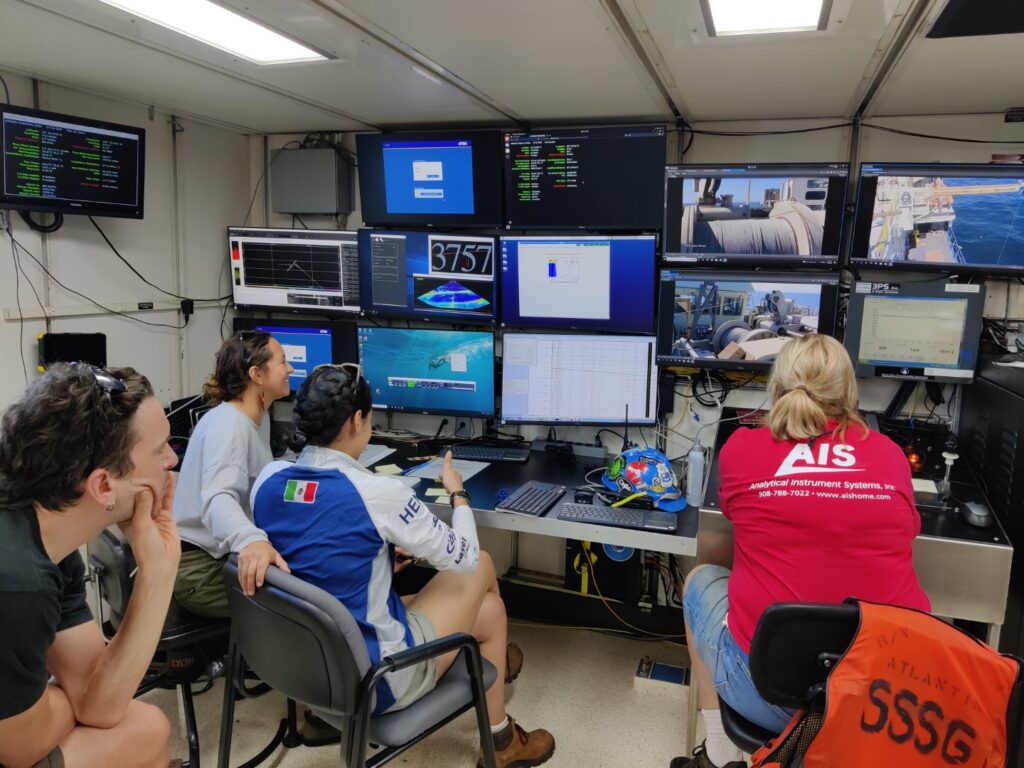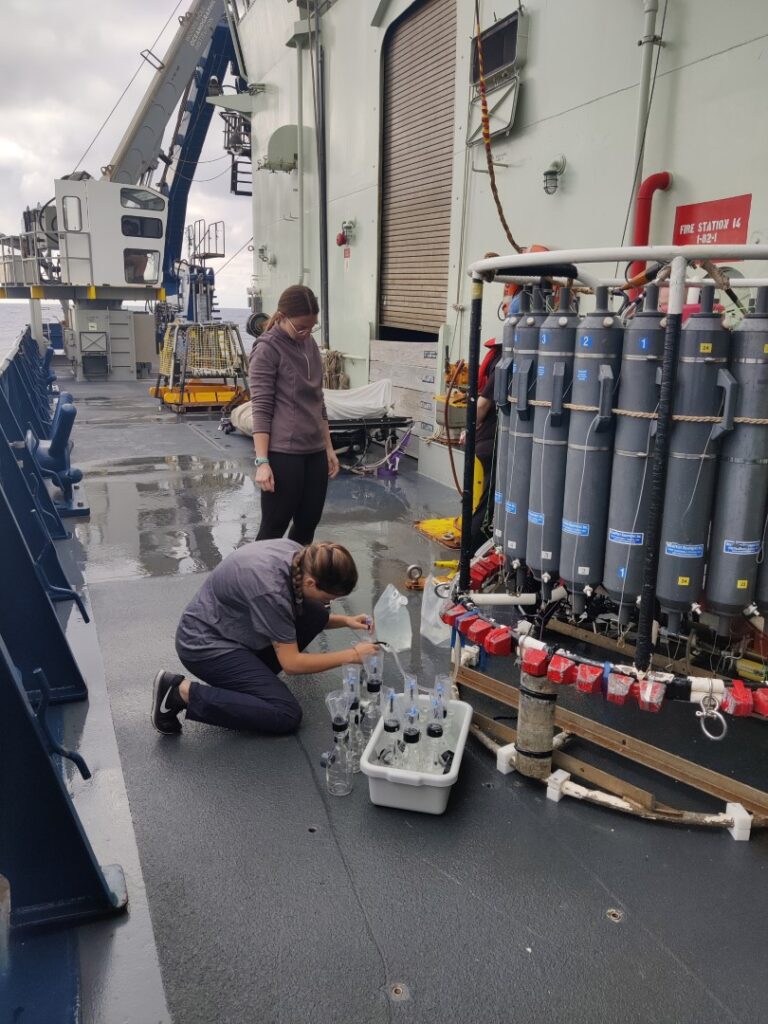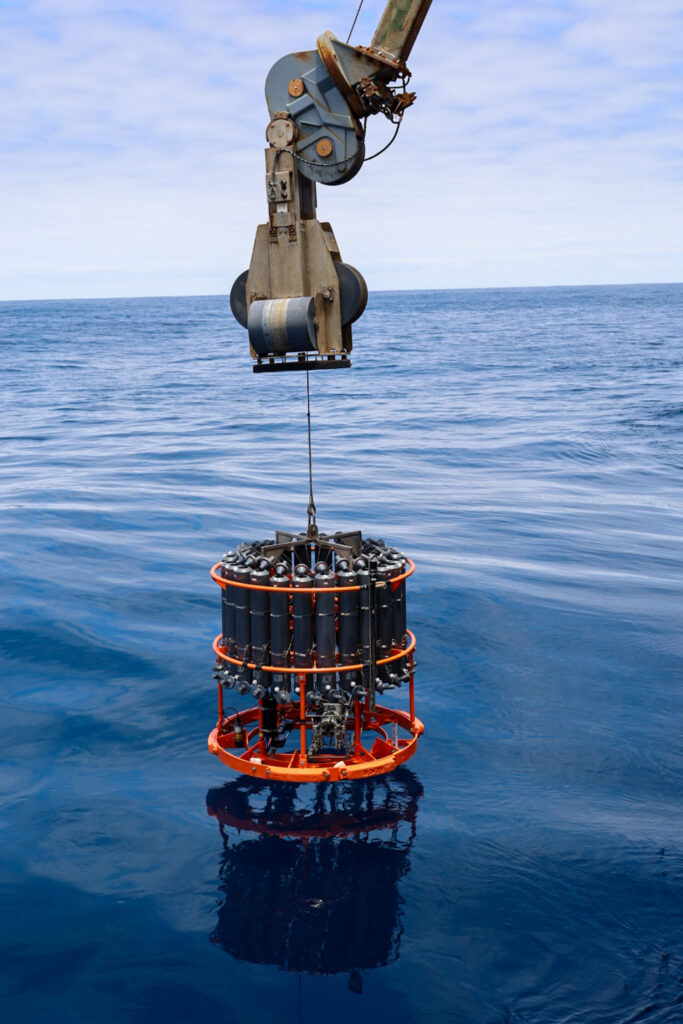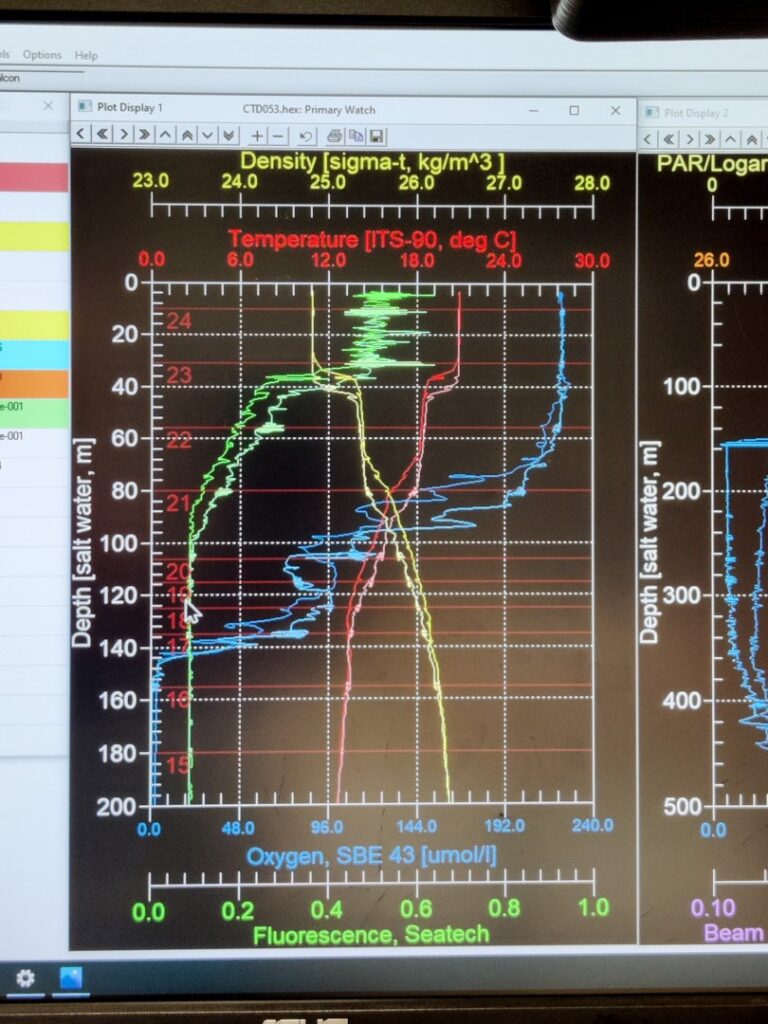Home » MEBL@UCA
Category Archives: MEBL@UCA
Lab-Bahia: Postdoc offer to study the biogeochemical fluxes in intertidal ecosystems
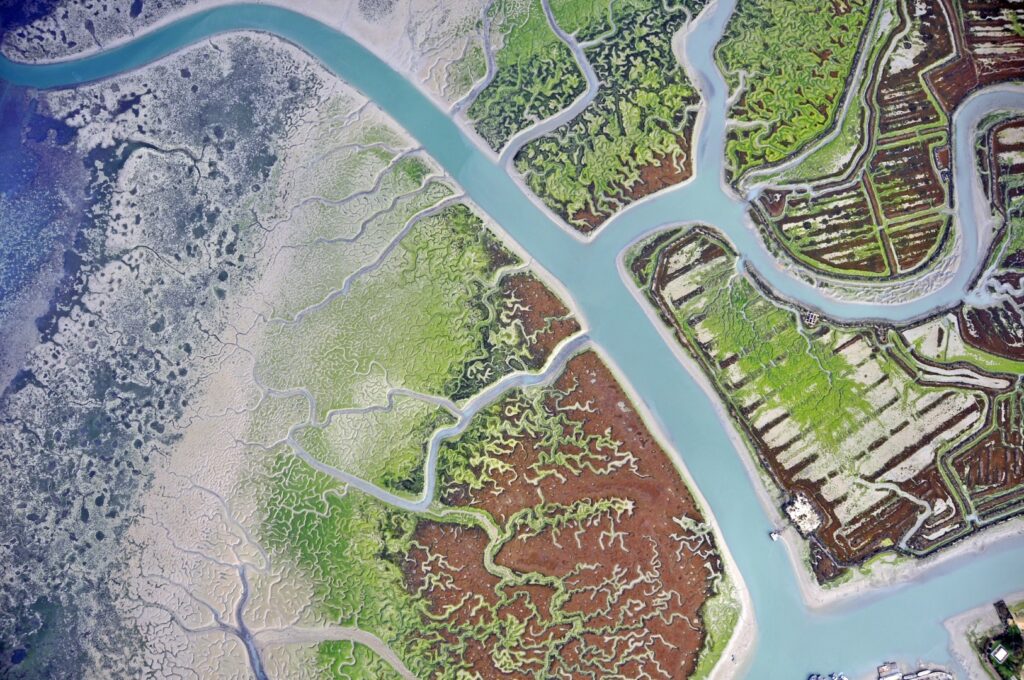
We offer of postdoctoral contract until 31/12/2025, with the possibility of an extension (conditions apply). The applicant is expected to contribute to research on the study of primary production, biogeochemical fluxes and carbon sequestration and biodiversity patterns in response to climate change in the project “Multiscale monitoring of carbon sequestration, biodiversity and climate change in coastal marshes” (Lab-Bahia). Lab-Bahia is a project funded by the Supplementary Marine Science Plan and the Recovery, Transformation and Resilience Plan of the Spanish Ministry of Science and Innovation.

What?
We are looking for a postdoctoral researcher to assist with the following tasks:
Contribute to research on the study of primary production, biogeochemical fluxes and carbon sequestration and biodiversity patterns in response to climate change.
– Analyse the information obtained by remote sensing techniques (drones and satellites) and perform the scaling and mapping of project variables.
– Carry out in situ measurements with field instruments for the measurement of biogeochemical variables and the biogeochemical variables and validation of remotely sensed data.
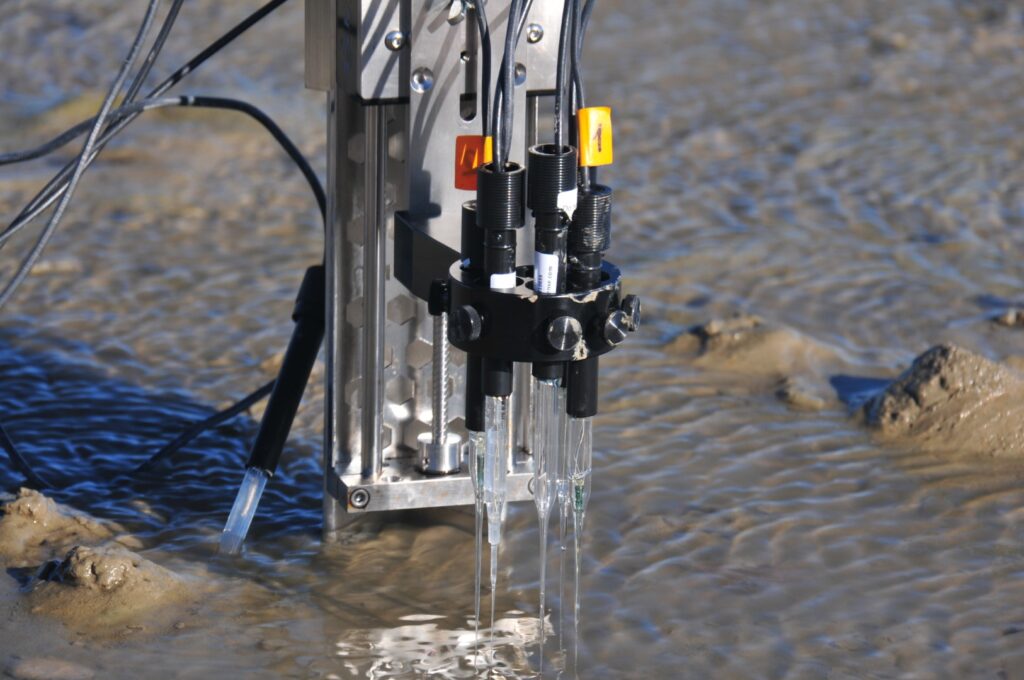
– Data processing and statistical analysis of environmental variables for the determination of spatial patterns of the spatial patterns of photosynthetic communities and primary production in intertidal zones.
– Extract data on biogeochemical, environmental and climatic variables from different sources, organization and sources, organization and preparation for analysis and incorporation into databases.
– Support the development of biogeochemical models in aquatic systems related to primary production in sediment and production in sediment and water, gas and nutrient exchanges at the sediment-water and sediment-air interface, and microbial processes.
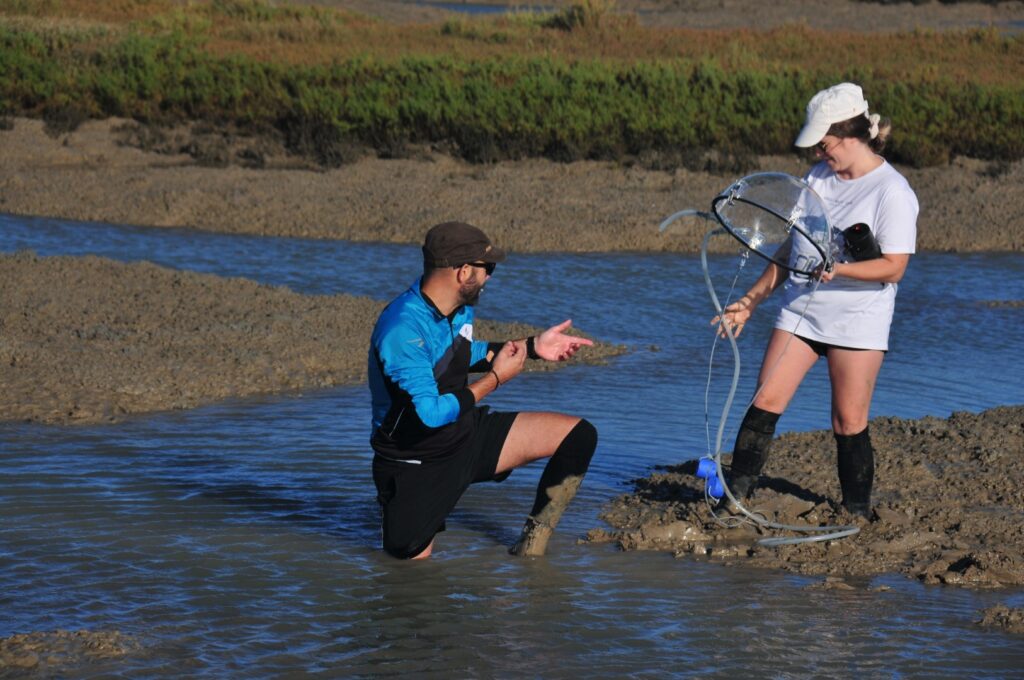
When?
The candidate should start as soon as possible (earliest expected date is early January, which depends on the selection process).
Where?
The selected candidate will join the Microbial Ecology and Biogeochemistry Group of the Department of Biology of the University of Cadiz, under the supervision of Sokratis Papaspyrou.
Preferable skills
– Experience in the measurement of sediment-water and sediment-air fluxes using benthic chambers with IRGA, FTIR, etc. or Eddy covariance towers.
– Experience in spatial ecology of communities, mainly marine photosynthetic communities, and carbon cycle biogeochemistry.
– Experience in Geographic Information Systems (ArcGis, QGis) and advanced programming (ArcPy, Python, Python).
– Experience in the use of statistical tools, for spatial and time series analysis.
– Experience in other techniques related to Microbial Ecology and Biogeochemistry in wetlands and marshes will be highly valued.
– Good knowledge of written and spoken English (scientific level).
How to apply?
The contract offer is published in Spanish in the University of Cádiz website (https://personal.uca.es/convocatorias-de-capitulo-vi-2024/). The call will open from 14th to 23rd November 2024. The specific information is in ANEXOS-nOVIEMBRE-2024 (Anexo 1 in Spanish, English translation here).
https://personal.uca.es/convocatorias-de-capitulo-vi-2024/
Call documents: Annex Calls November 2024
If you require more info or help to apply, please send an email to sokratis.papaspyrou@uca.es. Please, send an email with your CV (any format) and a cover letter before applying for the position. Two reference letters should also be sent by referees to the same email, maximum two weeks after the closing date.
Sandra’s stay at SDU
After five months in Odense (Denmark), I have completed my stay at the University of Southern Denmark (SDU), where, in addition to learning how Aquatic Eddy Covariance (AEC) works, I conducted two experiments that provide key information on its application in intertidal zones. Although AEC is an innovative method for measuring O2 fluxes and studying various dynamics in aquatic ecosystems, its use remains limited due to its complexity. Internationally, only a few laboratories have adopted this technique, and in Spain, only one research institution has implemented it to date.
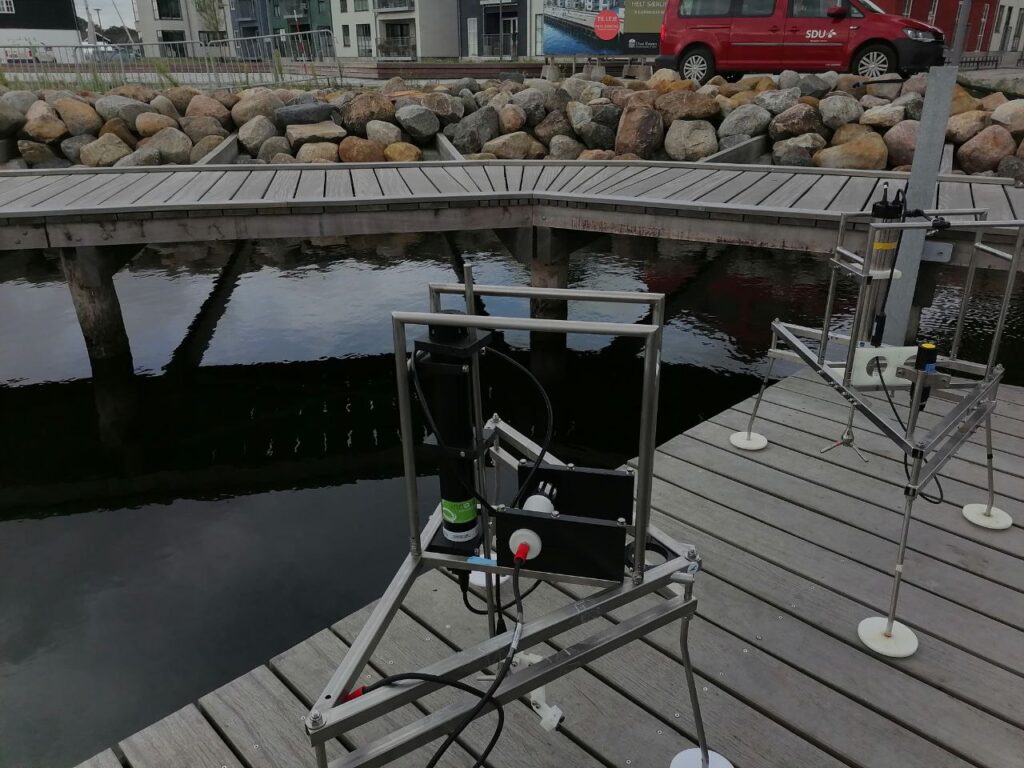
Aquatic Eddy covariance. A bit of an introduction….
The AEC is a non-invasive method that allows the measurement of benthic biogeochemical fluxes with a high resolution, during days or weeks continuously. This method is a relatively new technique (Berg et al., 2003). Over the last two decades, the quality of benthic O2 flux measurements by AEC has improved by incorporating new rapid response systems that measure O2. Due to their complexity, O2 measurement systems used for AEC must undergo rigorous testing under well-defined laboratory and field conditions to assess performance, reliability and potential limitations (Berg et al., 2016; Chipman et al., 2012; McGinnis et al., 2011).
An example of a new O2 measurement system is the AquapHOx-LX logger (PyroScience, GmbH; referred to as AquapHOx). It is an optical submersible meter, which has been designed to perform high resolution O2 measurements underwater, making it a suitable option for collecting robust AEC data.
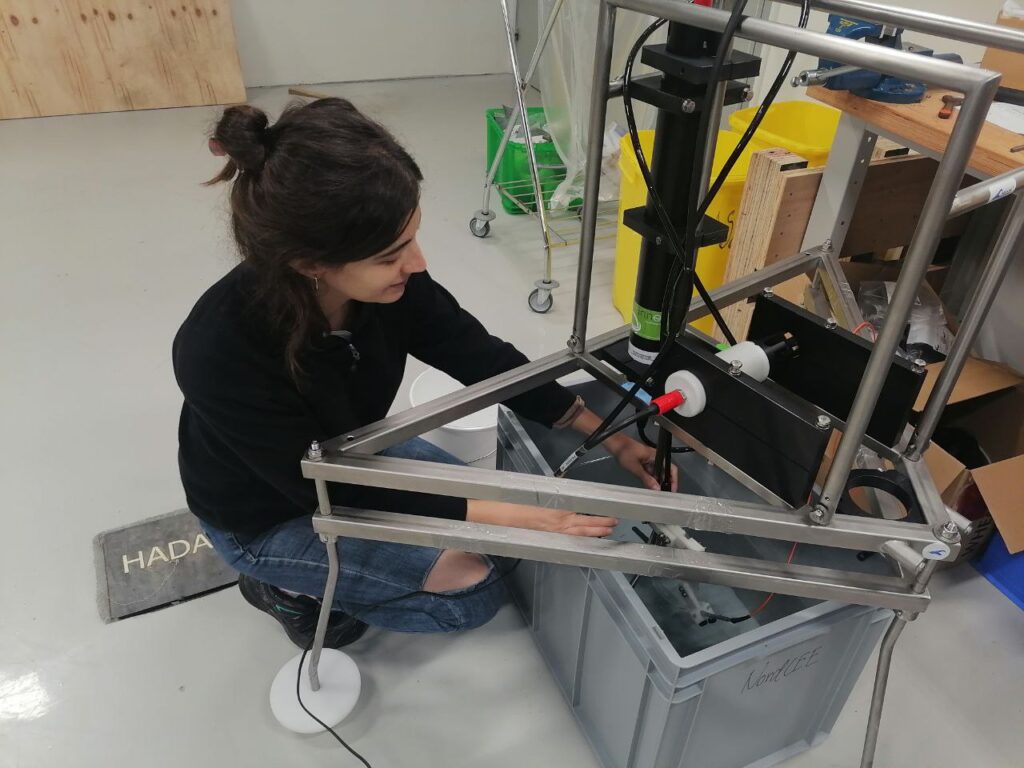
In intertidal zones, the use of the AquapHOx system can present challenges due to temperature variations between the sediment and the water column. This can occur because, during low tide, the sediment is directly exposed to solar radiation, which causes significant heating of the sediment surface. When the tide rises and the sediment returns underwater, the temperature difference can generate heat fluxes from the seabed to the water column. These thermal fluctuations, however small, can affect the O2 signal. This potential error in the O₂ signal can alter the interpretation of biogeochemical fluxes in these areas.
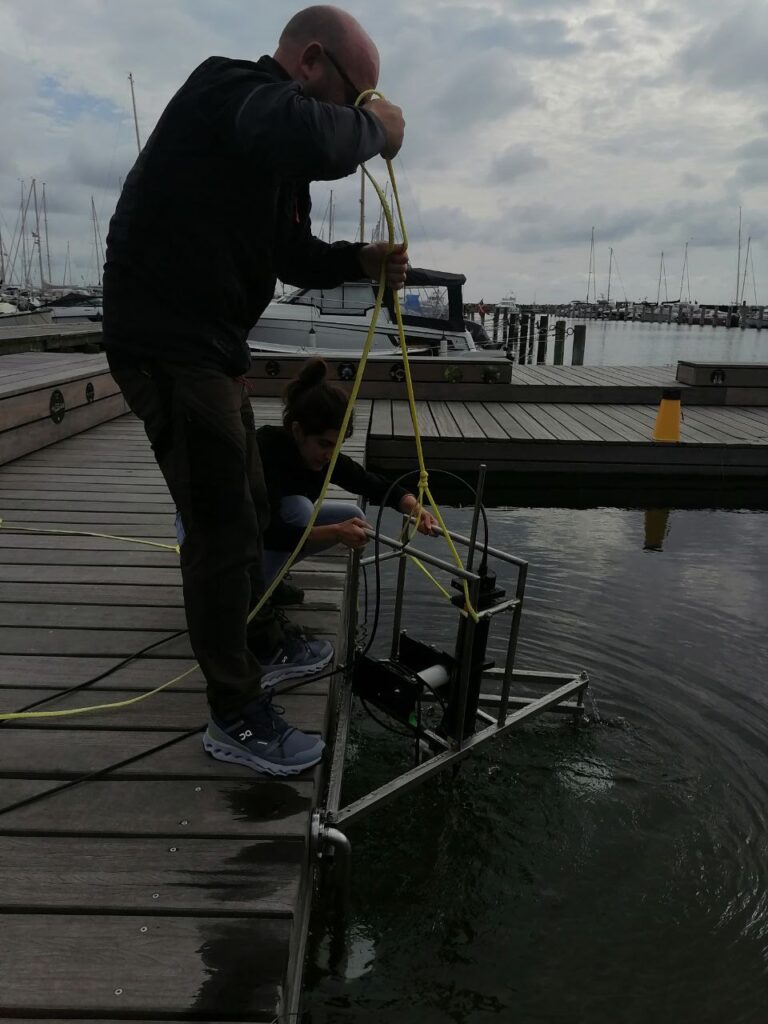
Since AEC is a relatively new technique (Berg et al., 2003), there are hardly any studies in intertidal zones (Volaric et al., 2020) that quantify the importance of heat fluxes between the sediment and the water column. Therefore, it is necessary to test:
- how much the O2 signal is affected by temperature, i.e., what percentage of the oxygen fluctuations are driven by natural oxygen changes versus temperature effects, and
- how long it takes for the sediment surface and water to equilibrate in temperature.
To verify this, we performed two short experiments. The first consisted of quantifying the effect of temperature on the O2 signal; the second consisted in quantifying the time it takes for the sediment surface temperature to equilibrate with the water column.
Test 1. Evaluating the response of the O2 signal to temperature changes.
The sensitivity of the O₂ sensor to thermal variations was evaluated following the procedure described by Granville et al. (2023).
Test 2. Quantifying the time, it takes for the sediment surface temperature to equilibrate with the water column after the sediment surface was exposed to high temperature
This experiment aimed to measure how long sediment takes to reach equilibrium with the water column after being exposed to high temperatures, simulating low tide conditions. Additionally, it also examined whether sediment color affects heat absorption.
To do that, five sediment cores of different color were collected from Odense Fjord, Denmark, acclimatized for a day. After that, we performed different temperature profiles, with and without a water column, to obtain initial conditions.
The sediment surfaces were then exposed to high light intensity (simulating solar radiation) for 2 hours without water. Afterward, temperature profiles were measured every 20 minutes using a temperature probe until the temperatures returned to initial levels. The process was then repeated for each core in the presence of a water column.
After these experiment, we can conclude that, although, the sediment surface may heat up more in the absence of the water column and in darker sediments, the recovery time showed no observable differences. Furthermore, considering that the temperature of the water column and of the uppermost layers of the sediment quickly returned to their initial conditions, it can be concluded that AquapHOx can be used in intertidal zones.
Irene at WHOI
Irene’s doctoral thesis investigates the effects of decreasing oxygen conditions on microbial communities through the aerobic respiration kinetics and how these communities adapt at the oxic-anoxic interfaces. As a part of her PhD work, Irene has participated in two oceanographic expeditions to oxygen minimum zones (OMZs) in the North and South Pacific Ocean. During these campaigns aboard scientific research vessels, she performed on-site experiments and collected samples for molecular biology analysis, aiming to understand microbial behaviour at the genetic level.
Currently, Irene is undertaking a predoctoral research stay at the prestigious Woods Hole Oceanographic Institution (Massachusetts, USA) from September 20 to December 20, 2024, under the supervision of Maria G. Pachiadaki, an expert in molecular biology, particularly in metagenomics and metatranscriptomics of marine environments. During this stay, Irene is conducting DNA and RNA extractions to describe microbial communities, as well as identifying key genes and enzymes involved in their adaptation to decreasing oxygen conditions. This research sheds light on how microorganisms adjust to oxygen-depleted oceans, where critical biogeochemical cycles and functioning of the world’s oceans depend heavily on microbial processes.
MULTI-FLUX: PhD offer to study the primary production of benthic communities in shallow coastal areas and the effect of climate change
PhD offer to study the primary production of benthic communities and the impact of Extreme Climatic Events, such as heat-waves and wind storms, on shallow coastal areas, focusing on the impacts on the biological community and biogeochemical functioning .
What?
We are looking for a motivated candidate to pursue a doctoral thesis in microbial ecology and biogeochemistry of coastal ecosystems. The project will be supported by the MULTIFLUX project, which aims to quantify in an integrated manner the effect of heat waves and wind storms, affecting temperature and sediment resuspension conditions, on the biogeochemical functioning of a shallow coastal ecosystem.
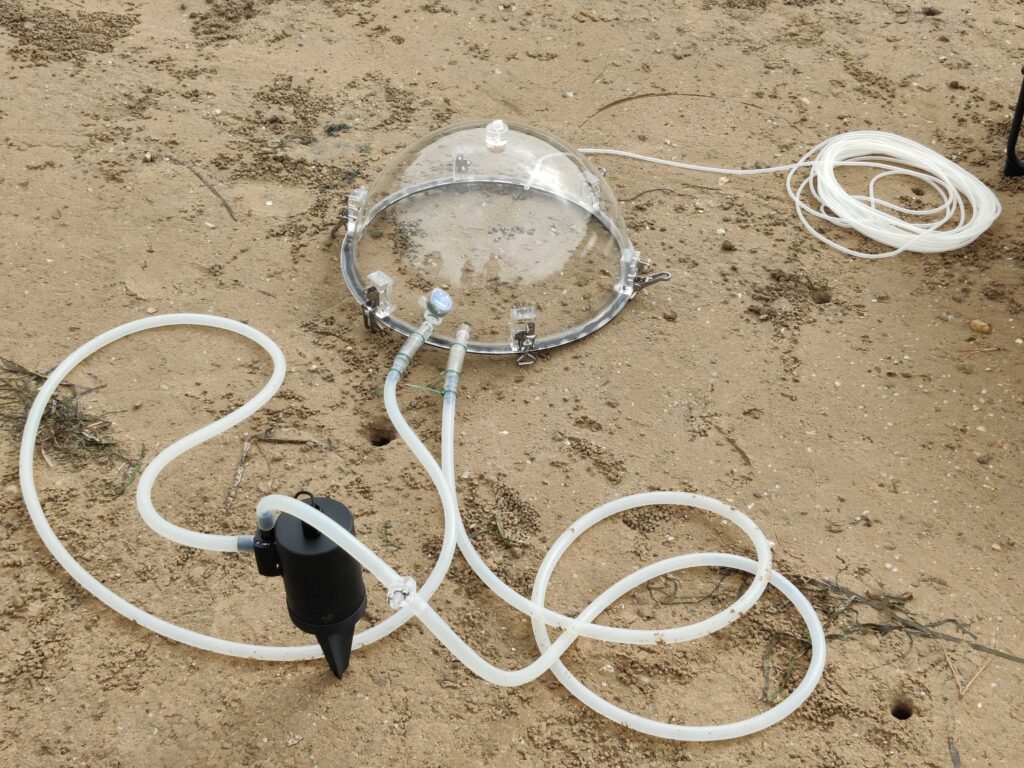
The candidate will use a combination of laboratory experiments, field measurements, and aerial data (satellite, drones…) to study the spatial and temporal variability benthic communities and its contribution to the primary production of the system and evaluate the effect of changes in external forcing by temperature and resuspension/hydrodynamics under normal and extreme conditions on benthic-pelagic coupling and carbon flux throughout the system. Strong focus will be given in the use of benthic chambers and the Aquatic Eddy Covariance technique, in collaboration with our colleagues in SDU (DK). For more information check the project’s webpage here.
When?
It is expected for the PhD to start in January 2025 and will last 4 years, with no possibility of an extension. Depending on the date of the PhD defense, there is the possibility of a postdoc contract within this 4 year period (all contracts included).
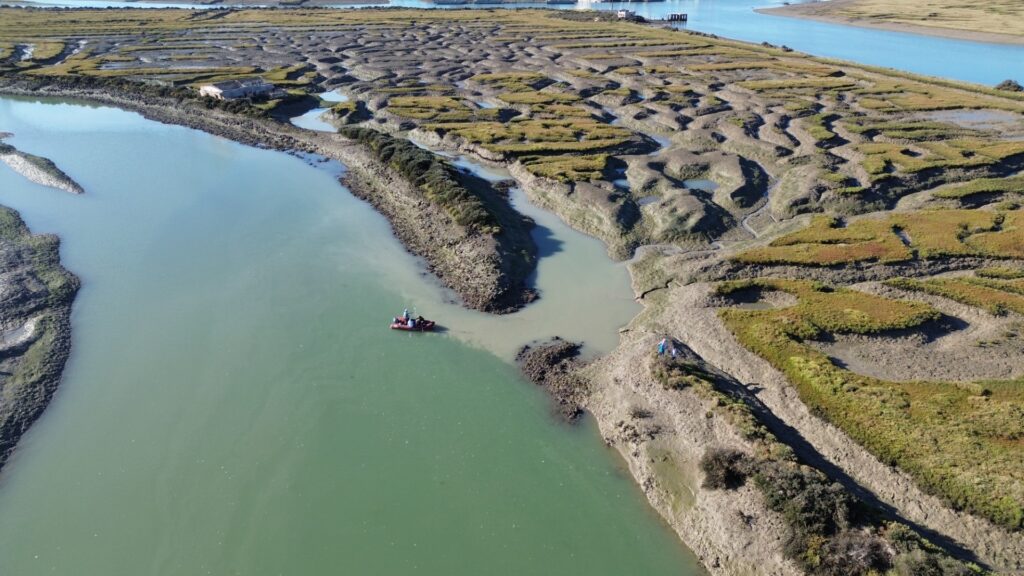
Where?
The PhD will be developed in the Microbial Ecology and Biogeochemistry Group of the Department of Biology of the University of Cadiz, under the supervision of Sokratis Papaspyrou and Irene Laiz.
Requirements
- The candidate must have obtained a bachelor’s degree on Marine or Environmental Sciences, Biology or similar and a Master’s degree preferably also in the same topics.
- The candidates must request to be pre-registered in a Doctoral Program in Marine Science and Technology at the University of Cadiz (https://posgrado.uca.es/doctor/)
- Be highly motivated and committed to develop a scientific career.
- Have some experience on biogeochemistry, aquatic ecology, microbiology, remote sensing, environmental chemistry or similar.
- Have experience on scientific reading and writing.
- Have a high level of written and spoken English.
How to apply?
Applications are open from from October 23rd to November 6th, 2024 (23:59) on the website: https://ugi.uca.es/convocatoria-formacion-personal-investigador-ministerio-de-ciencia-2024/
Please read the call carefully. If in doubt about any aspect (official call is in Spanish), please let us know.
Applications
- Send the application electronically through the following link: https://sedelectronica.uca.es/procedimientos/?proc=474
- IMPORTANT: In order to get access to the system, the applicant must send an e-mail to rrhh.investigacion@uca.es indicating his/her interest in submitting an application mentioning the call and project. Please do this well in advance before the deadline, as this is not an automated system. If you experience delays, please email us.
- Project Reference: PID2023-146617OB-I00 “Monitorización multiescalar de flujos biogeoquímicos y producción primaria en sistemas costeros someros: el efecto del forzamiento físico y del cambio climático”
- Only a single application is allowed per candidate.
- Documentation to be attached:
- Documentation certifying pre-admission to the PhD Program by filling in this form. As this has to be signed by the director of the school, please send it to us, we will do it for you and we will send it back to you.
- Curriculum vitae, using this template: CV
- Academic certificates issued by the universities where the Bachelor’s and Master’s degrees were obtained: the grades obtained, the scale used, and the date of graduation must appear. For the bachelor’s a full transcript should be provided. If the certificate is in a language other than Spanish or English, an official translation should be included. It is recommended that you check and include in the CV the corresponding scales based on these tables. https://www.universidades.gob.es/wp-content/uploads/2022/12/AnexoII-equivalencias.pdf and https://www.universidades.gob.es/wp-content/uploads/2022/12/AnexoI_escalas_1.pdf
- Copy of valid passport in case of foreign, non Spanish resident, citizens.
- Any other documents specified in the call. Please read it carefully.
- Make sure you upload a pdf copy of all certificates of degrees, courses, languages, employment contracts etc. to back the CV claims. The documentation supporting the merits to be evaluated must be submitted in a single PDF file with a maximum size of 15 MB. If no certificates are included, according to Spanish law, the merits cannot be considered.
- Online interviews will be arranged, if all the paperwork is in order and HR forwards the application to us, during November.
Please, send an email with your CV (any format) and a cover letter to sokratis.papaspyrou@uca.es before applying for the position. Two reference letters should also be sent by referees to the same email, by November 15th, 2024.
Only applications sent by the official channel will be considered by HR. Sending an email to us is not enough.
Please, be informed that the net salary for the employee after tax and social security contributions for such positions in Spain is approx. 1200€/mo (fixed by the Ministry of Science and Research), plus an extra pay in June and December (check this table). This salary is lower than in other European countries, however the cost of living is also lower. Here is a comparison of the cost of living between Brussels and Cádiz for indicative purposes only.
The effect of an invasive algae on the beach biogeochemistry
We have successfully completed the second year of field samplings of the project “Beach biodiversity and the ecological role of the invasive species Rugulopteryx okamurae in beach ecosystem functioning” Project Excel_01050, lead by Ivan Franco Rodíl.
During the second year, we contributed in measuring the bacterial diversity and leaching of dissolved organic carbon associated with accumulation of the invasive algae on different beaches of the coast of Cádiz.
The samples are currently being analysed but they show already how the organic matter of the beach racks alters the microbial benthic community along the beach transect. Hopefully the results will contribute to the management of this environmental issue that affects the local economy (fisheries, tourism).
Effects of heatwaves on the physiology of benthic microalgae
Andalusia has a high diversity of wetlands. These include intertidal shallow systems, which are important both ecologically and economically, given that the microalgae that grow at the sediment surface are an important source of food for higher-level organisms such as fish, oysters etc.

The microphytobenthos (MPB) is the photosynthetic community living on the sediment surface. They play an important role in shallow estuaries as they can be responsible for a large part of the primary production. This community is dominated by diatoms (algae covered in a silicate casing, called the frustule) and can achieve very high densities giving a golden colour at the sediment surface.
In order to deal with the highly fluctuating environments conditions that characterize the intertidal areas, such as light, temperature, tide cycle and seasonal variations, diatoms have developed several strategies. For example, they have the capacity to migrate vertically during the day to adapt to the light conditions and tidal variation.
Marika Mecca, one of our PhD students, is trying to understand the effects of climate change on the physiology and behavior of these benthic microalgae. Under normal conditions, the sediment surface undergoes large changes in temperature between night and day, under water (immersion) or exposed to the air (emersion), and between seasons. Thus, under a climate change scenario where heatwaves are more frequent, the shifts in temperature will be even larger and the effects on the physiology of the microalgae can be detrimental.
To study these effects, Marika uses various instruments and sensors in the lab, such as oxygen microsensors to measure the amount of oxygen produced, temperature sensors to measure the variations vertically, reflectance sensors to detect the migration rhythms etc.
The principal area of study is the Guadalquivir River. Once the cores are collected in the field, back at the laboratory these sediments are subjected to different conditions simulating the changes observed in the field under normal and extreme weather conditions.
The results show an effect of prolonged high temperatures on the migration rhythm of the microalgae (avoidance of the sediment surface), although differences in total net metabolism are less probably due to a stimulation of rates by the higher temperature. These results were presented at the ASLO 2023 conference in Mallorca.
Sandra’s research stay in SDU
From 1 May until 1 October 2024, Sandra Rizzo, one of the pre-doctoral students from our laboratory, is visiting the University of Southern Denmark (SDU, Odense) on an international stay to learn the use of the novel Aquatic Eddy covariance (AEC) technique. Sandra will work under the supervision of Profs. Karl Attard and Ronnie Glud.
AEC is a direct and non-invasive method that allows the quantification of benthic metabolism rates by measuring oxygen fluxes with a high resolution, during days or weeks and continuously.
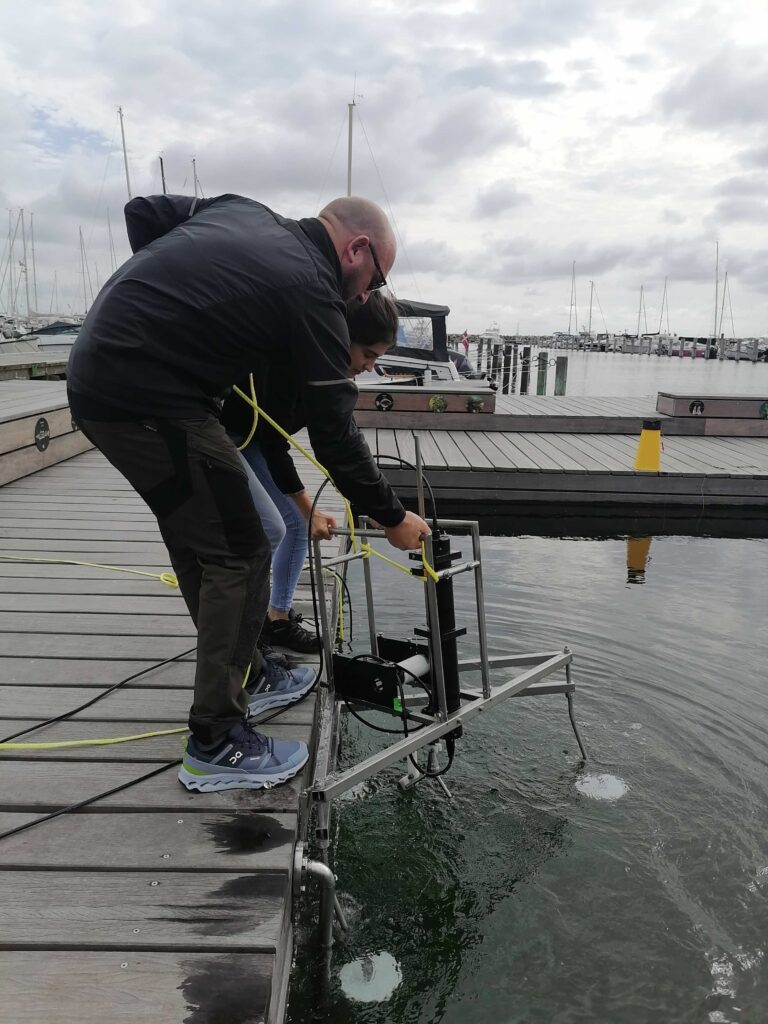
The stay at SDU will allow us to transfer the know how to our laboratory, which only a few laboratories at international level have and extend our collaboration with our Danish colleagues. Furthermore, in practical terms, the use of the AEC method will facilitate the monitoring of benthic metabolism rates in different habitats in our area and to study the effect of extreme wind events, without the logistical problems associated with sampling under such conditions. Our new project MULTIFLUX will focus heavily on this aspect.
Annual Sampling in the Bay of Cádiz
Within the framework of the EXTREME-FUN project, we are investigating how benthic primary production, the biomass of microphytobenthos and the amount of carbon that is buried or exported from the system varies throughout the year, and at different points in the Bay of Cadiz.
How do we do it?
Using a zodiac, which allows us to access difficult shallow areas, we collect 25 sediment cores distributed throughout the Bay and 15 more distributed in each of two opposite areas with different characteristics (one sandy, one muddy), allowing to obtain a higher spatial resolution.
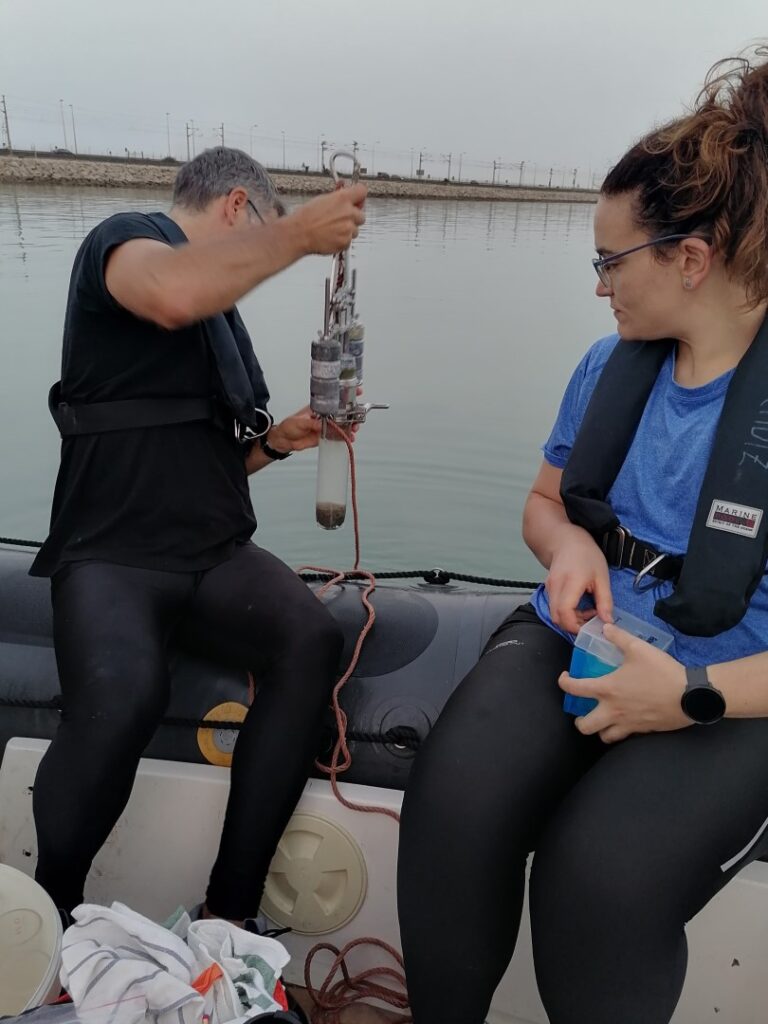
In order to scale up the data obtained to a higher spatial resolution, we fly at the same time drones equipped with multispectral and thermal cameras and we coordinate the sampling with the pass of SENTINEL 2 satellite.
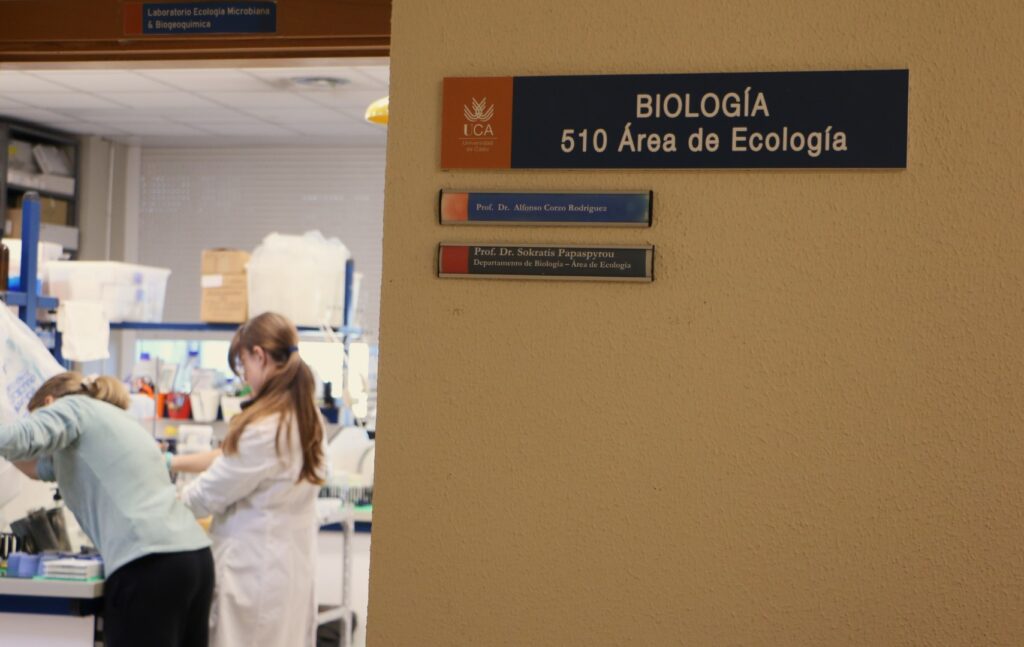
When the sampling is finished, we transport all sediment cores to the laboratory and we measure several biogeochemical variables such as oxygen fluxes, reflectance, chlorophyll, grain size, etc.
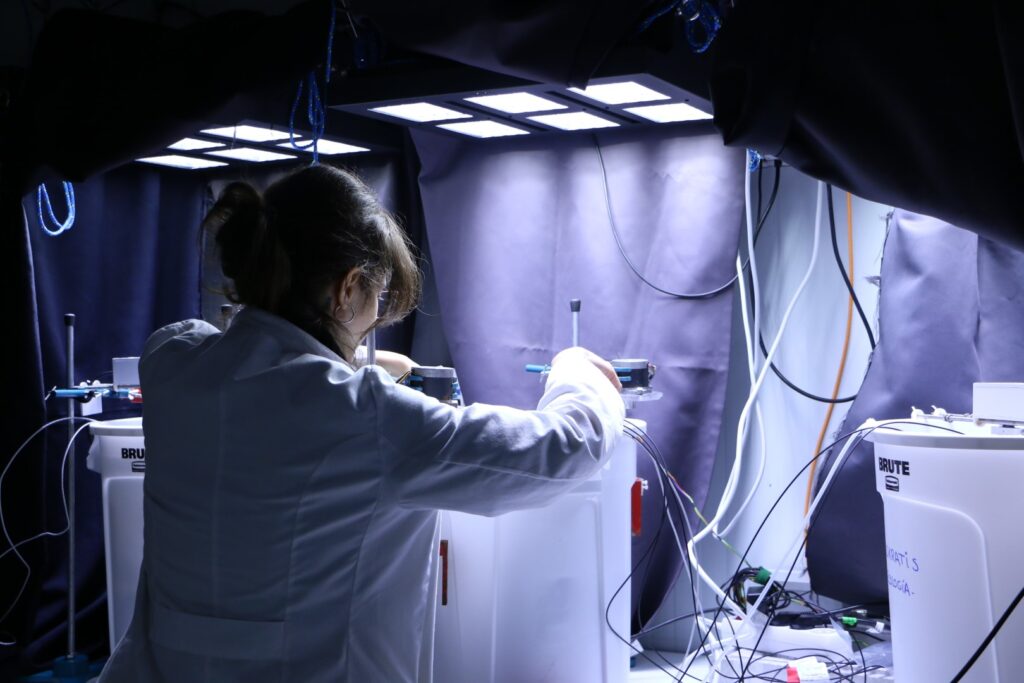
¿Why are we doing that?
In order to estimate the effect of extreme events, such as heatwaves and storms, which are becoming more frequent and intense, on the biogeochemistry of intertidal sediments, it is essential to know the baseline conditions in the Bahia. Therefore, this sampling intends to increase the data available, allowing us to upscale using remote sensing, before studying the extreme events.
By : Sandra Rizzo Calderon
Unveiling microbial strategies in a changing ocean: microorganisms adaptations to decreasing oxygen conditions
A brief introduction…
Oceans deoxygenation is considered one of the most important threats currently occurring in marine ecosystems, as the oceans have lost about 2% of their oxygen inventory over the last 50 years. However, the impact of deoxygenation is not only happening in oceanic zones, hypoxic and anoxic coastal zones are also increasing. To get an idea of the areas of low oxygen content, here is a global map from Breitburg et al. (2018). The red dots refer to hypoxic coastal zones (dissolved O2 content < 60 µmol O2 kg-1), while the shaded blue areas represent oxygen minimum zones (OMZs).
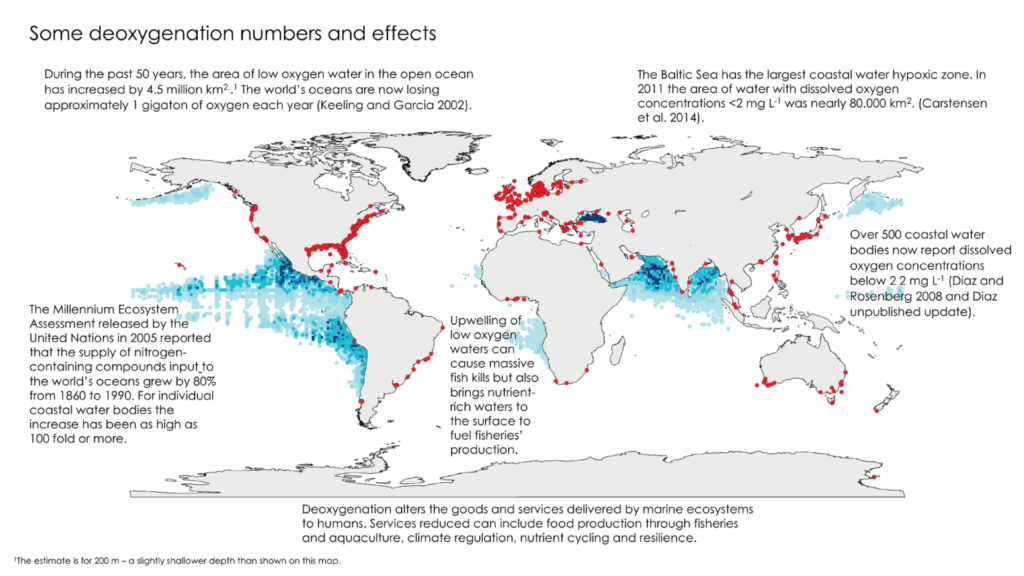
Consequently, microorganisms have to face these decreasing oxygen conditions, but how do they do it?
Aerobic respiration is carried out by terminal oxidases, a group of enzymes that play a key role in the final stage of aerobic respiration. There are two groups of terminal oxidases: low and high affinity terminal oxidases (LATO and HATO), with a half-saturation constant (Km) of 200 nanomol L-1 O2 and 2-8 nanomol L-1 O2, respectively. In contrast to eukaryotes that only possess low-affinity terminal oxidases, prokaryotes have both high- and low-affinity terminal oxidases. Prokaryotes can use both types during aerobic respiration to modulate their affinity for oxygen, and therefore, adapting to decreasing oxygen conditions.
Michaelis-Menten kinetics model (picture below) can be used to study the effect of oxygen concentration on respiration rates and thus, the microbial performance under these decreasing oxygen conditions. The kinetics parameters, maximum respiration rate (Rmax) and half-saturation constant (Km), offer insights into the relative use of different oxidases and overall adaptation strategies employed by microorganisms.
As the extension and distribution of low-oxygen zones are increasing, their impact on global biogeochemical cycles needs a deeper understanding of microbial processes. Therefore, aerobic respiration kinetics in environments with large oxygen gradients will help us better comprehend the distribution of microorganisms and their microbial processes occurring at the boundary of oxic-anoxic conditions.
Oxygen Minimum Zones: an overview
Oxygen minimum zones are systems where sinking of organic matter produced by primary production at the surface coupled with slow water circulation leads to the formation of oxygen-deficient water masses. The strong stratification observed in tropical areas allows these OMZs extend over vast regions, covering over 30 million Km2, which means 8% of the total ocean surface. This highlights the significant role of these zones on shaping the inhabiting marine ecosystems and biogeochemical cycles but, how?
OMZs play an essential role in the global nitrogen cycle, involving several chemical species and different bacteria processes. OMZs are associated to denitrification, a process that only occurs in oxygen-deficient regions. This process convert nitrate (NO3–), one of the main nutrients in the ocean, into gaseous nitrogen (N in the form of molecular nitrogen, N2, or nitrous oxide, N2O), which is lost to the atmosphere and contributes to the oceanic nitrate deficit.
OMZs are not only involved in the nitrogen cycle, but also in another biogeochemical processes like the production of production of sulphide (H2S) and methane (CH4), and limitation of atmospheric CO2 sequestration by the ocean.
However, the impact of OMZs extends to biodiversity, as this oxygen-deficient zone can serve as a refuge from predation for organisms specially adapted to these oxygen levels.
For this reason, OMZs are crucial for studying aerobic respiration kinetics. This natural gradient of oxygen concentrations allows us to investigate and study how different microbial communities adapt to different oxygen levels within the water column. By mimicking these gradients in controlled incubations, we can observe how respiration rates change across different oxygen concentrations, making OMZs a natural laboratory for understanding aerobic respiration kinetics.
Study of aerobic respiration kinetics
In order to measure the respiration kinetics, we perform a series of incubations in modified glass bottles. We monitor and follow the oxygen concentration throughout incubation time with a set of high-resolution oxygen sensors to measure oxygen consumption rates from anoxia to full oxygen saturation. The incubation bottles are kept in dark and placed in a temperature-controlled bath. The set-up of the experiment is shown below to the right.
Using the changes in the oxygen concentration during the incubations, we can calculate the respiration rates from linear regression of O2 concentrations over time in the different bottles with different oxygen concentration levels. We then use all the respiration rates measured at the different oxygen concentrations for fitting the Michaelis-Menten model and characterize the respiration kinetics of the microbial community, as we can see in the following graph.
The points in the graph represent the respiration or oxygen consumption rates across the wide range oxygen concentration used, from very low oxygen values to almost full oxygen saturation. For a better visualization of this wide range we also show the same data but using logarithmic scales on both oxygen concentration and respiration axes, showing the fitting of the data to the Michaelis-Menten model across the wide range of oxygen concentrations used.
The work behind the incubatios
Prior to running the incubation experiments, is essential to understand the water column’s physical and chemical characteristics. For that purpose, we use a conductivity-temperature-depth sensor, more known as CTD. This instrument is widely used in oceanography to characterize the changes of conductivity and the temperature with depth. Modern CTDs are also equipped with additional sensors to measure and collect data from other parameters like oxygen, fluorescence (indicative of phytoplankton activity), turbidity, etc.
The CTDs are attached to a metallic structured called rosette, which holds a bunch of sampling water bottles that are used to collect water from different depths. These bottles can be controlled remotely from a control room, where scientists receive live data from the CTD and can monitor changes in the physical and chemical characteristics of the water mases as the rosette descends. Once the rosette returns to the surface, bottles can be closed remotely at the selected depth. Here is an example: a rosette from the R/V Atlantis (Woods Hole Oceanographic Institutions, Massachusetts, E.E.U.U.). This rosette is composed by 24 sampling water bottles of 12 L each. However, the number and size of bottles can vary depending on the specific rosette design and research requirements. The CTD sensor is placed below the set of bottles. As a safety measure, the rosette is always securely tethered to the floor.
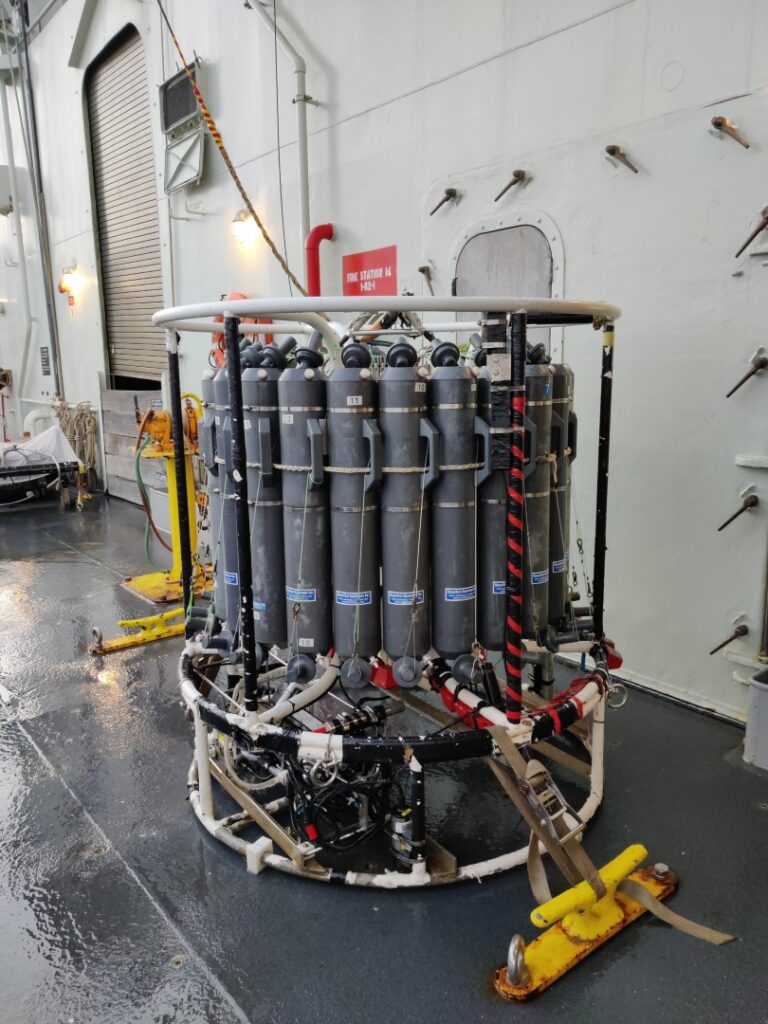
The process of the CTD deployment and recovery can be carried out by the scientific team on board with guidance and indications of the technical staff, or remotely controlled by a technician, as it’s shown in the pictures below. On the other hand, scientist receive the real-time data from the CTD sensors and the other sensors associated, obtaining the water column profile. Based on that, scientist make decisions regarding the following experiments and samples collection. Once the rosette is back to the surface and secured, water is directly collected from the bottles, as they have a spout for easy retrieval by directly connecting a tube. The success of samples collection lies on collaboration between scientist and the technical staff!
Our work in the local news
The Bay of Cádiz is characterised by extensive saltmarshes a large part of which over the centuries have been transformed to salt pans (salinas) and extensive aquaculture ponds. Despite the high economic, social, cultural and biodiversity value (for avifauna) of these anthropised systems, the interest in these activities is progressively declining.
In the last year, we have been collaborating with the project FOCUS “Importance of trophic interactions in food webs for Fish and mOllusCs qUality in estuarieS” (PI: Oscar Godoy del Olmo adn Ivan Franco Rodíl) to study the flow of carbon and the interactions between different trophic levels in such an aquaculture system in order to evaluate the processes that lead to the high quality products they provide.
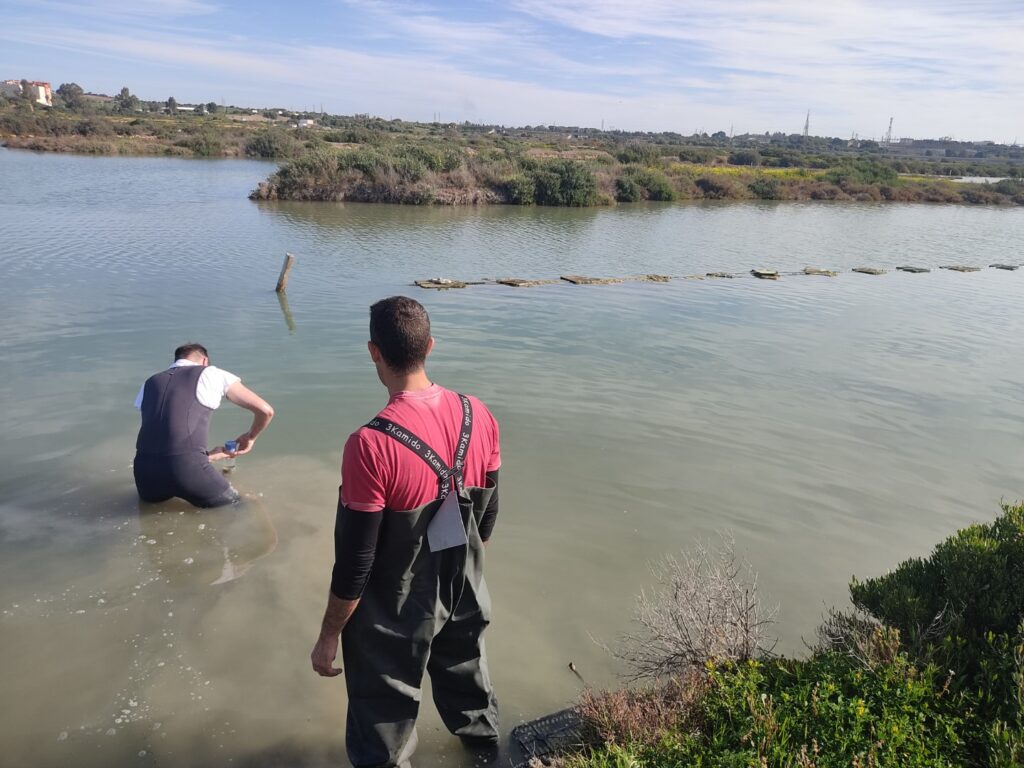
In this context, in our group we measure the C and N fluxes at the sediment water interface, the carbon and nitrogen content in the sediment and water column, as well as quantifying the communities of autotrophic pico and nanoplakton, microphytobenthos and bacteria.
Recently, we were interviewed by the regional TV channel interested in these systems.
https://www.canalsur.es/television/programas/conciencia/noticia/2033525.html
The project FOCUS is funded by MICIU/AEI/10.13039/501100011033 and by the European Union Next Generation EU/PRTR funds.

